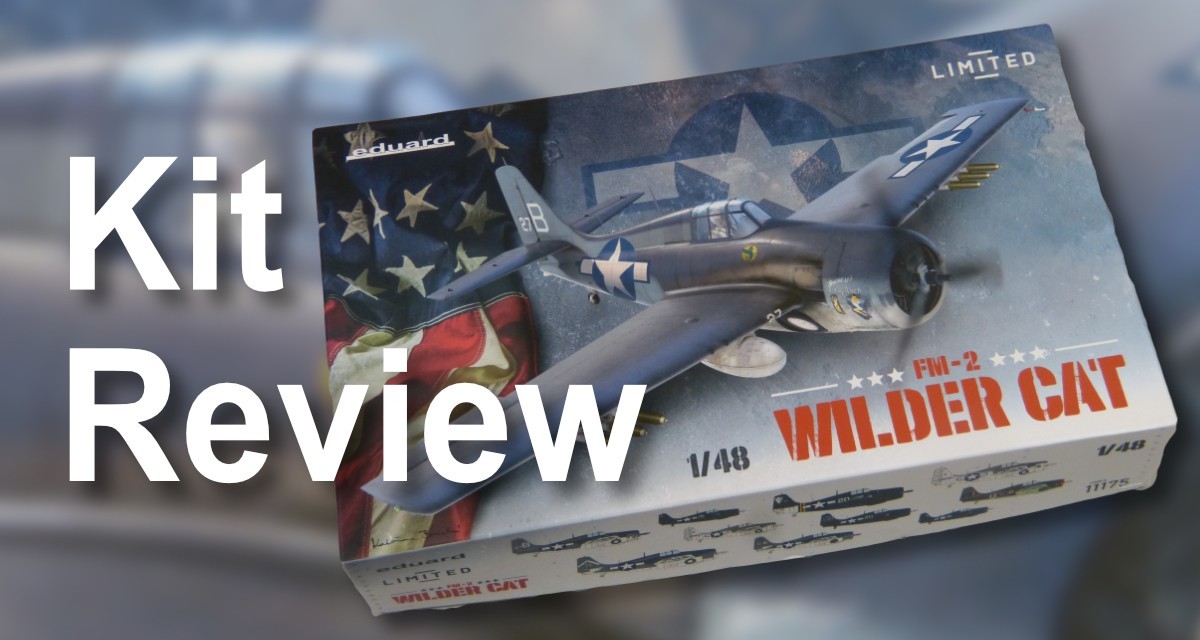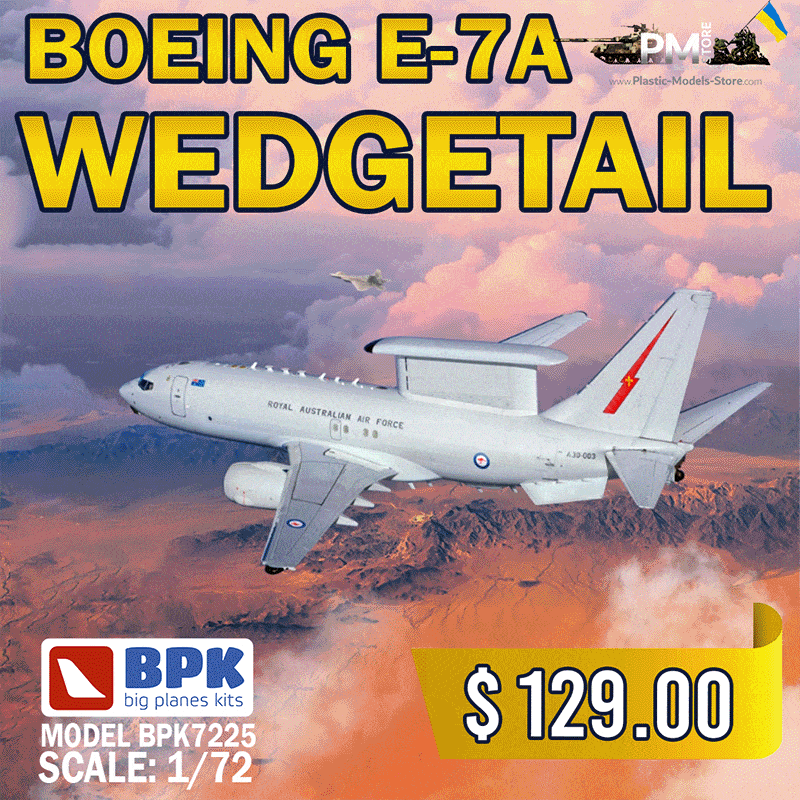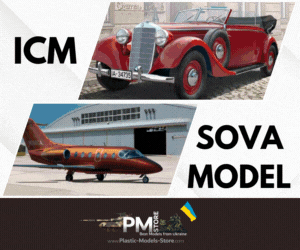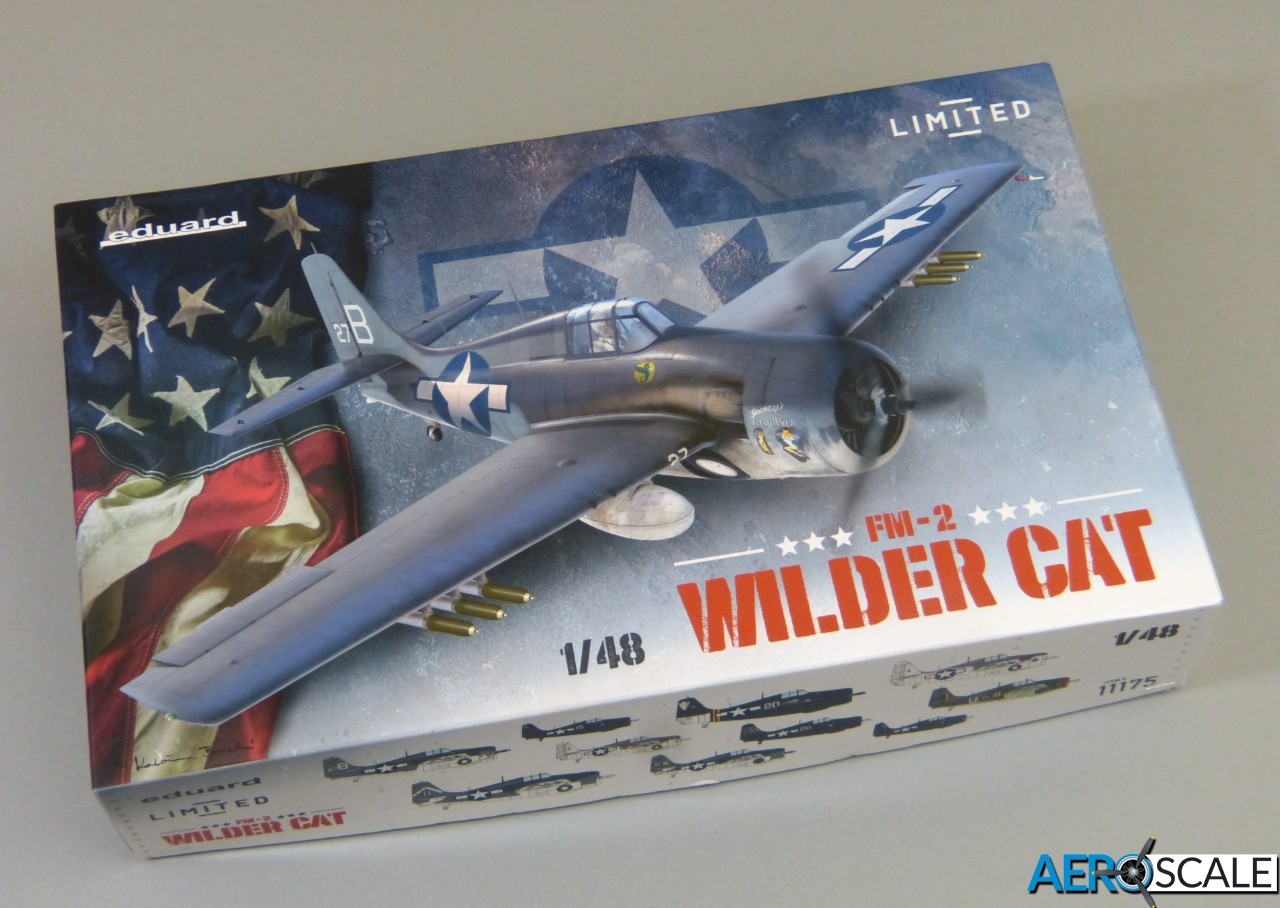
Background
Although rendered obsolescent as a primary naval fighter from the middle of WWII by the Hellcat and Corsair, the Wildcat still had a vital role to play on escort carriers. Here it's small size and it's ability to operate from the ships' shorter flight decks proved ideal. So, while Grumman switched production to the Hellcat, General Motors (already a subcontractor) continued producing the Wildcat, first as the FM-1 (broadly equivalent to the F4F-4, but with main armament reduced to 4 x 50 calibre machine guns to reduce weight) and then the fully developed FM-2.
The new version retained the reduced machine gun armament, but added the capability to carry rockets in addition to bombs and drop tanks to for a truly potent package. A more powerful R-1820 engine was fitted along with a broad-blade propeller, and the fin and rudder were increased in height to cope with the additional torque. Other external differences included the absence of a carburettor intake in the lip of the engine cowling, and the Wildcat's distinctive belly windows were deleted.
Unofficially dubbed the "Wilder Wildcat", over 4,400 FM-2s were built - more than half the total number of Wildcats of all other variants combined. The Royal Navy finally fell into line and also adopted the name Wildcat instead of their previous Martlet, designating the FM-2 as the Wildcat Mk.VI.
The Kit
Eduard's new "Wilder Cat" kit arrives in an eye-catching top-opening box. It's a limited edition release and features a wide selection of colour schemes which are illustrated on the side of the box-lid. Packaging and presentation is excellent, with the main parts and accessories in separate resealable bags.
The new kit comprises:
145 x grey styrene parts (+ 3 spare)
17 x clear styrene parts (plus 9 unused)
63 x photoetched parts
A sheet of die-cut painting masks
Decals for 10 x colour schemes
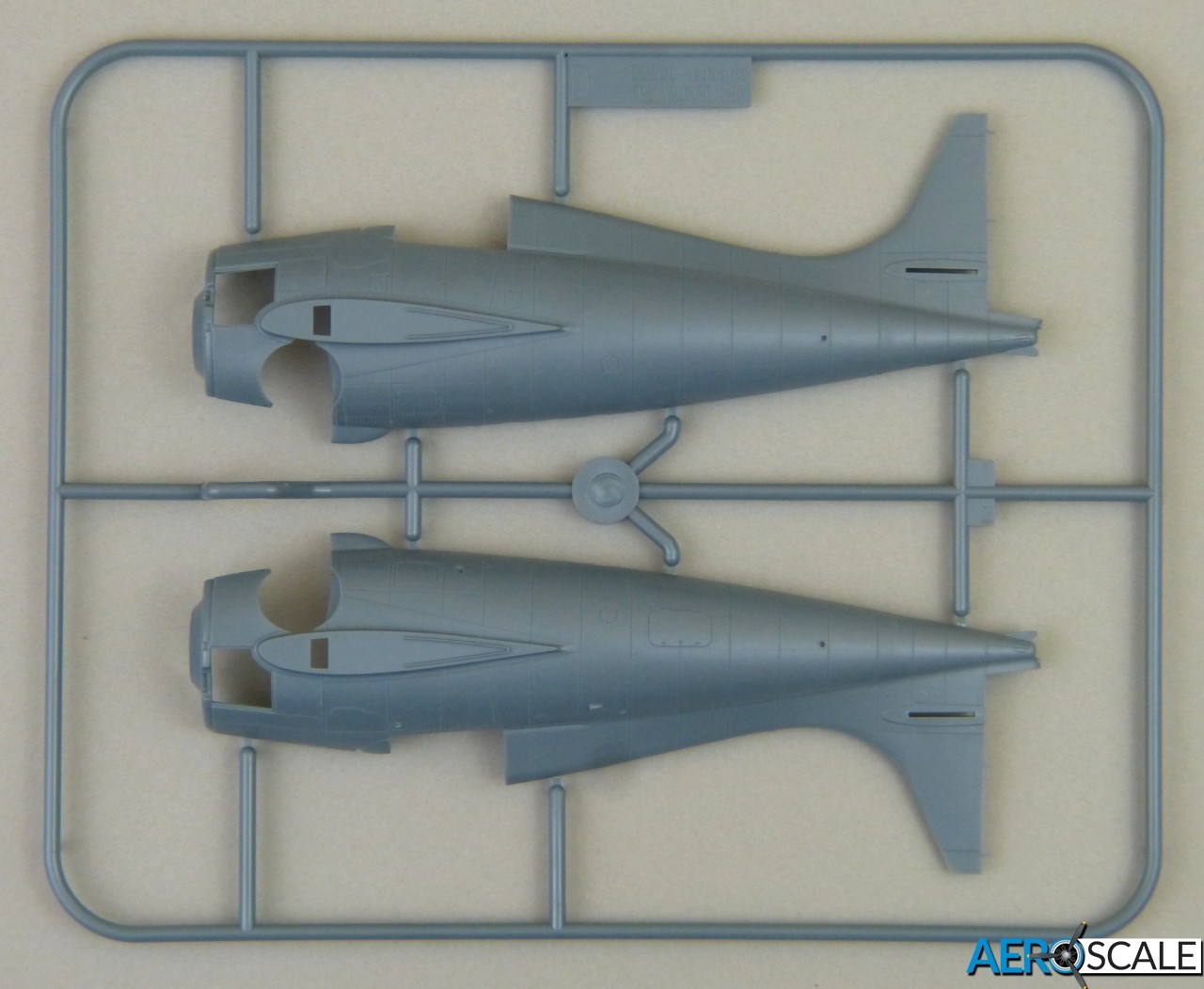
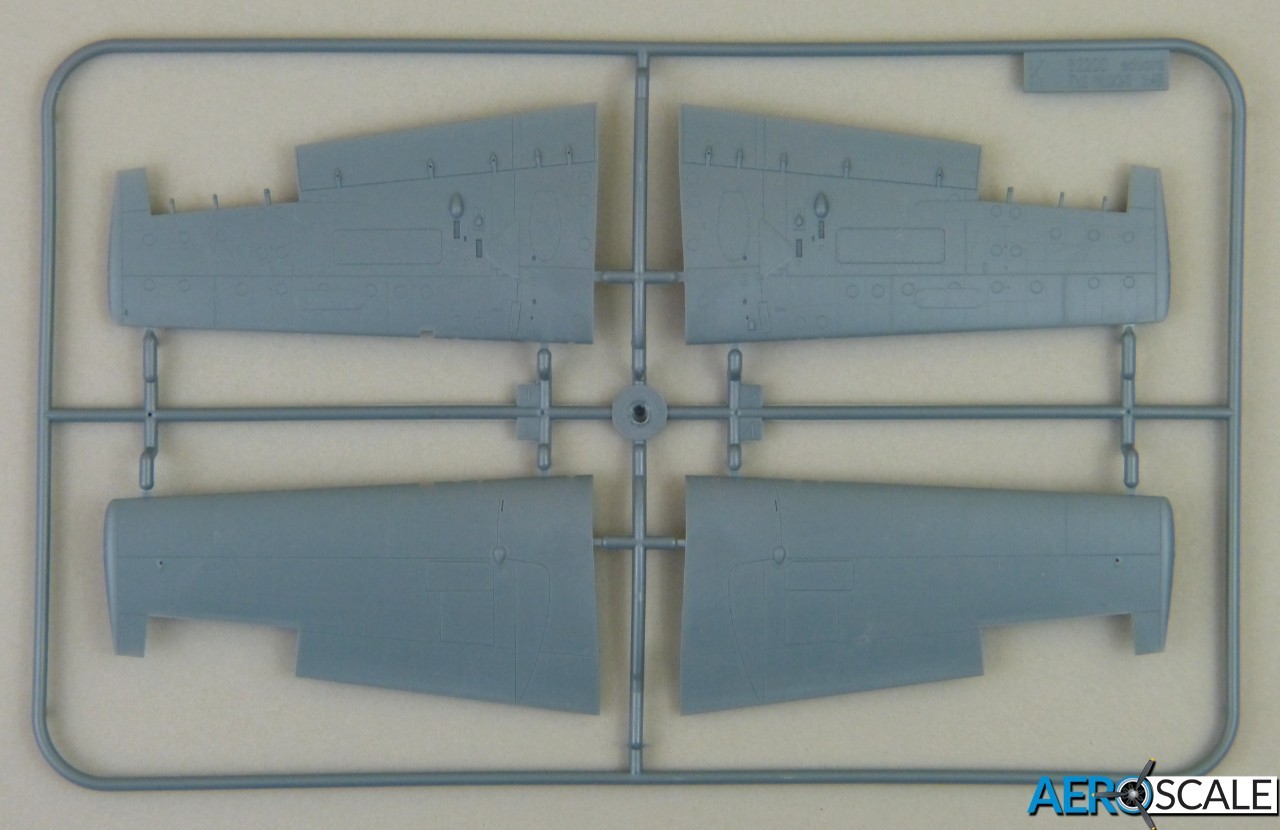
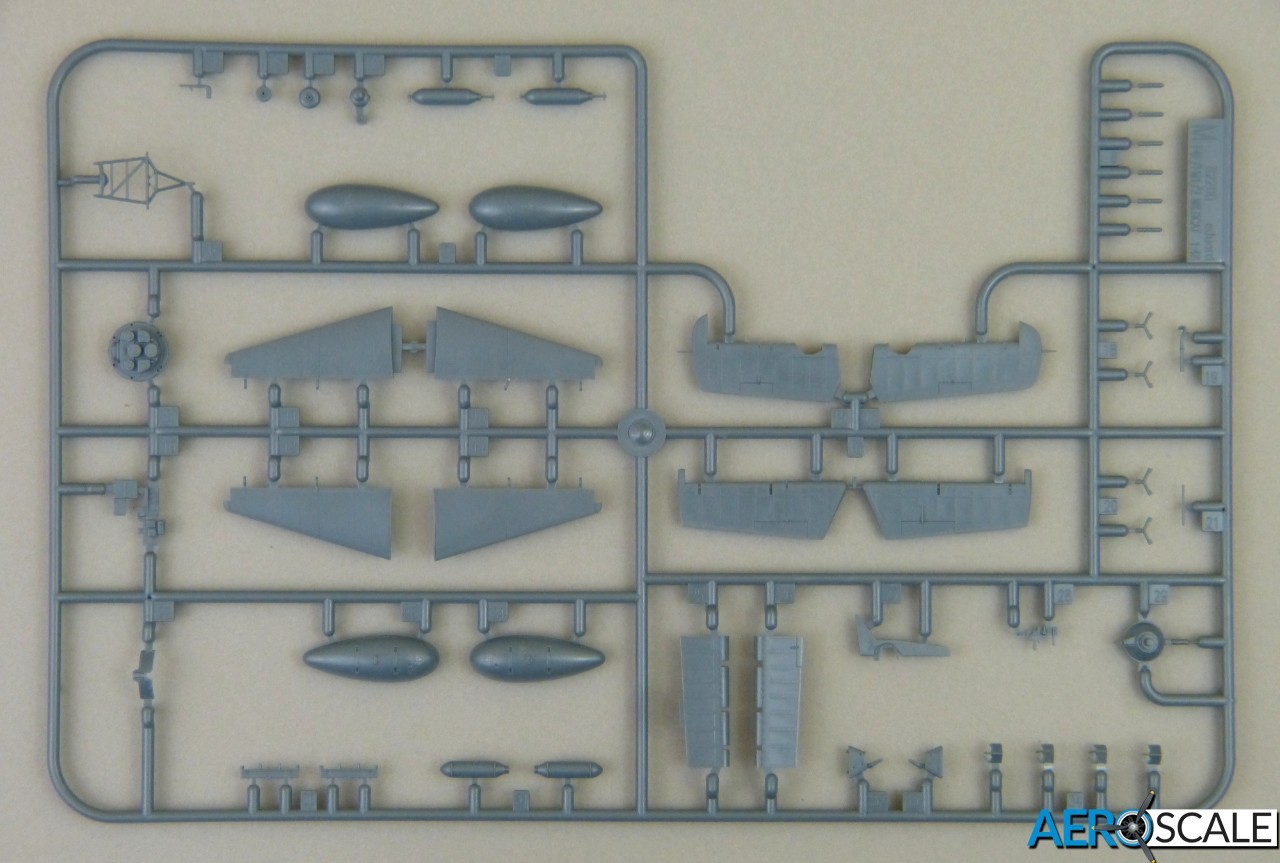
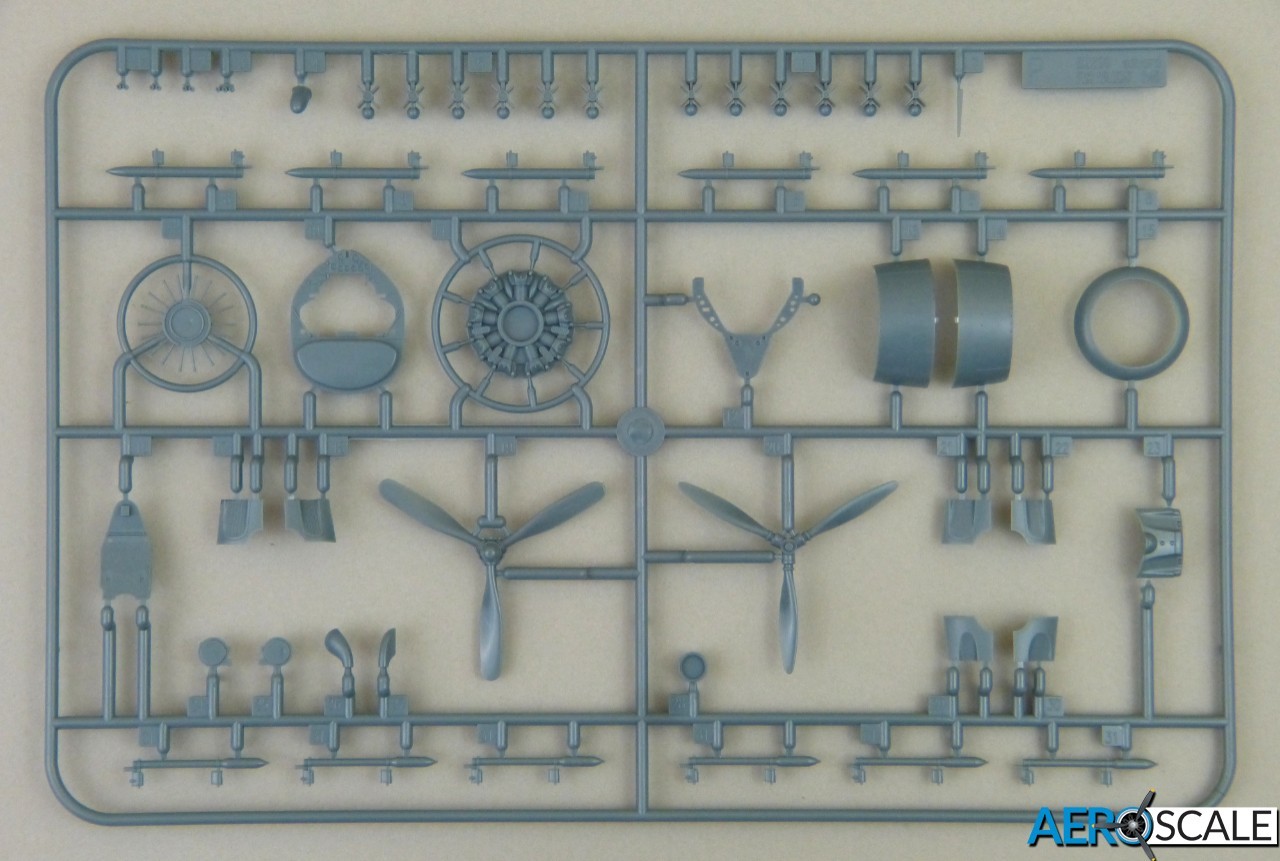
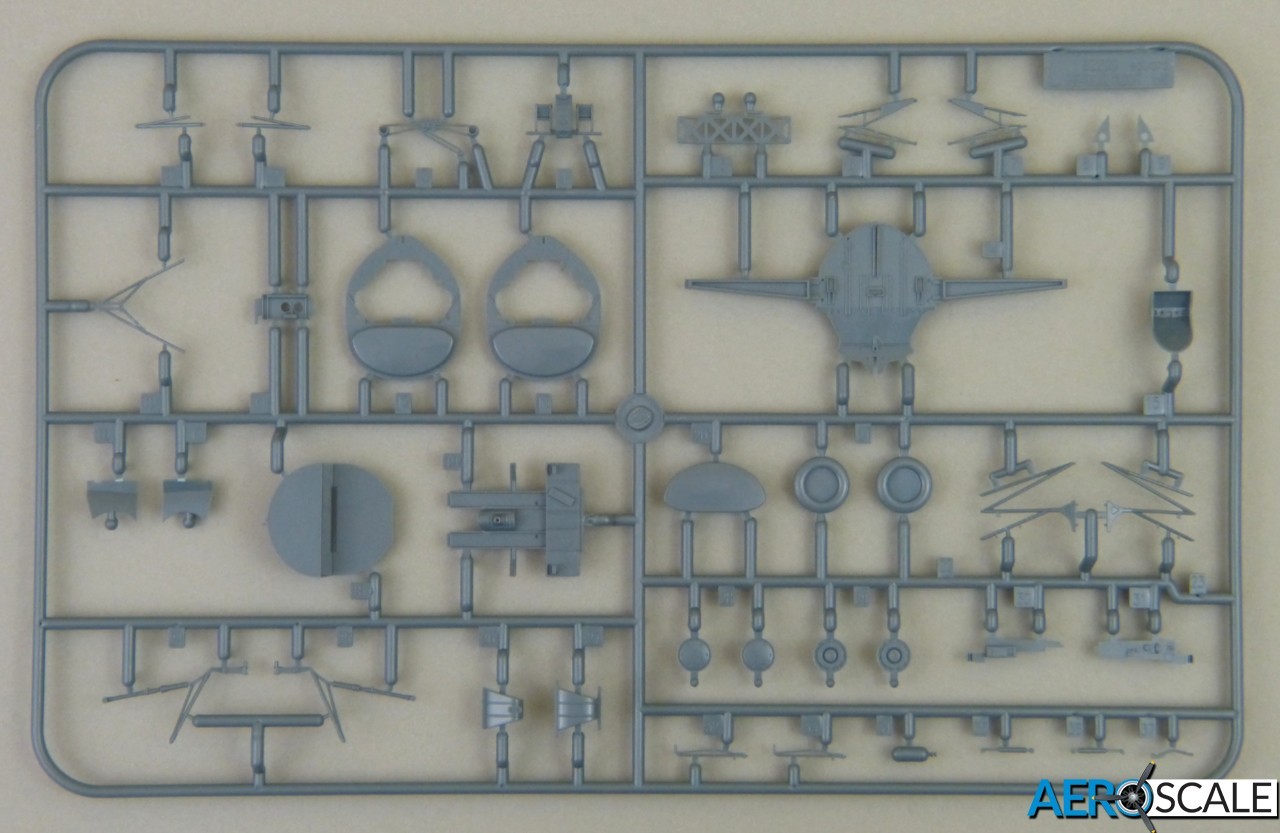
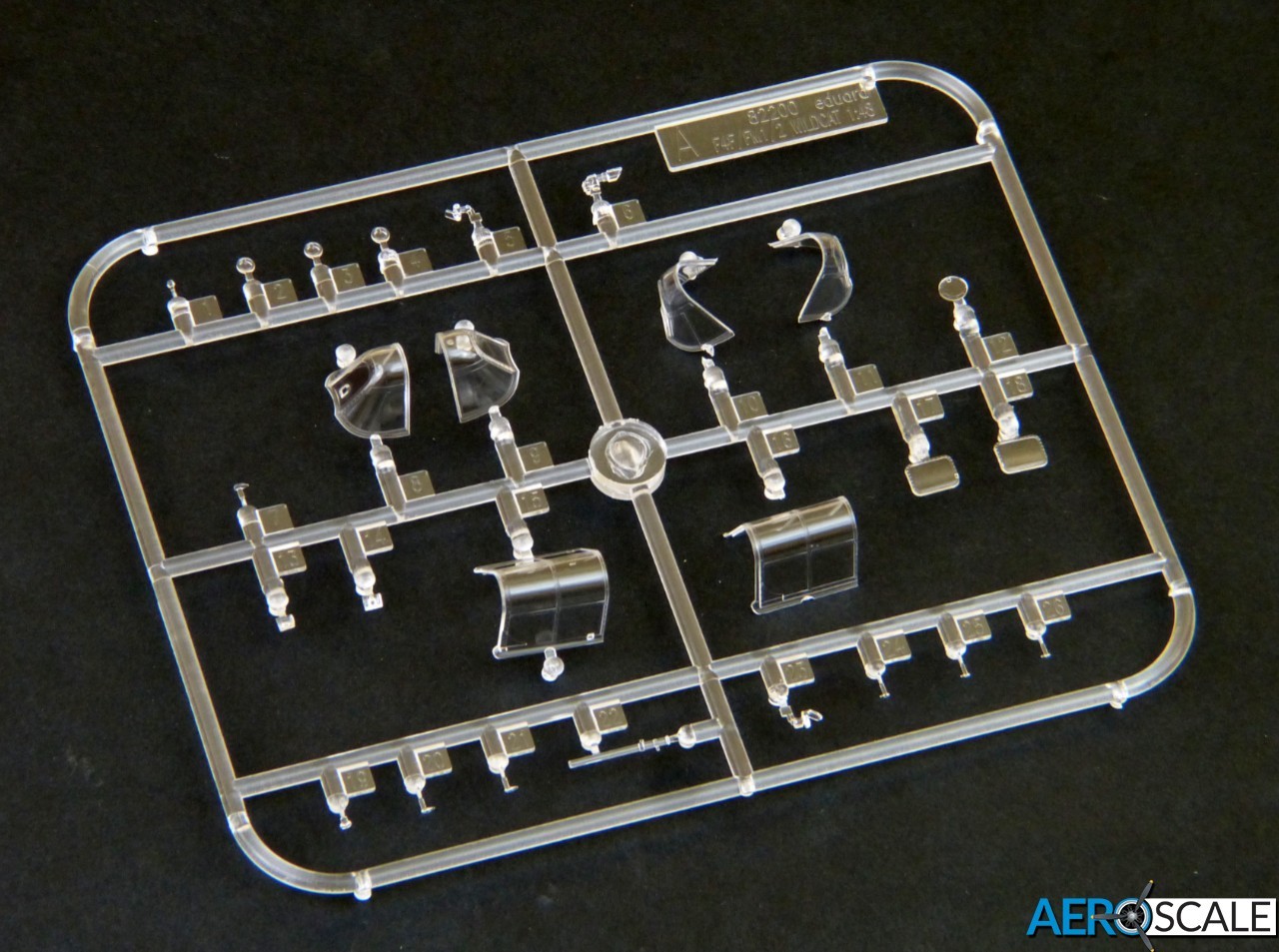
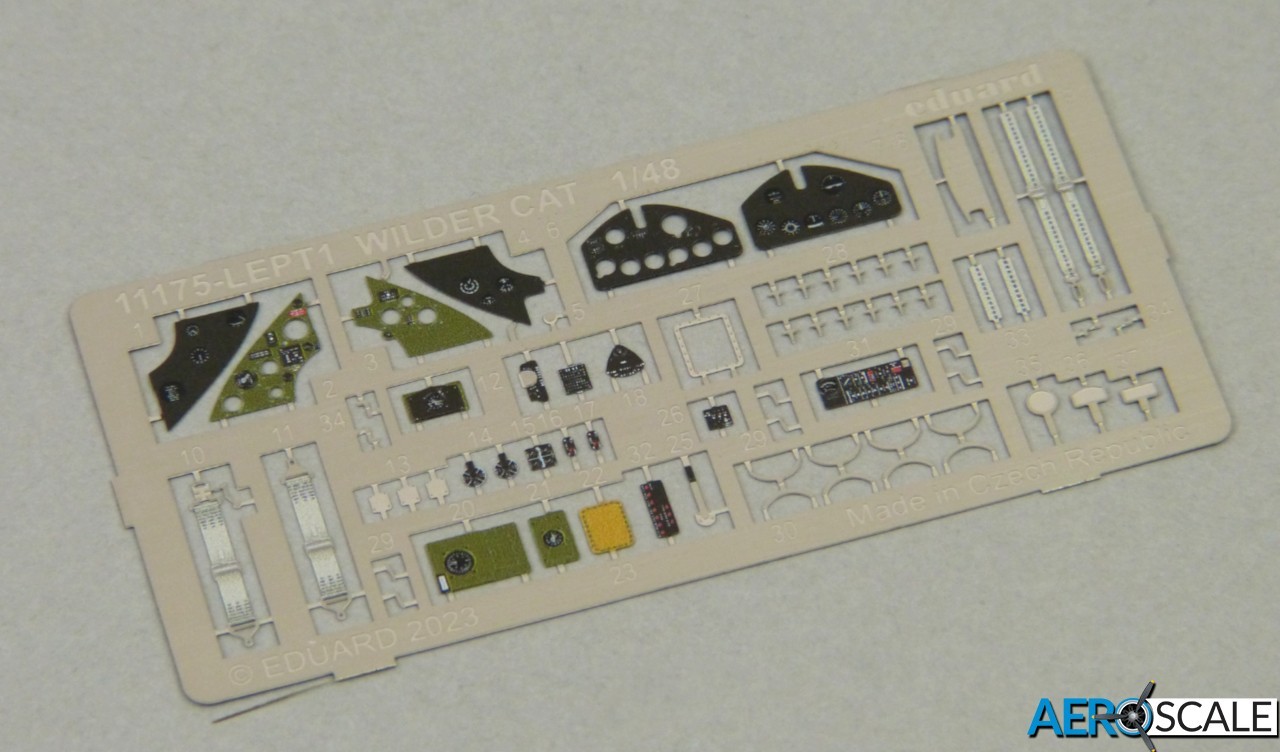
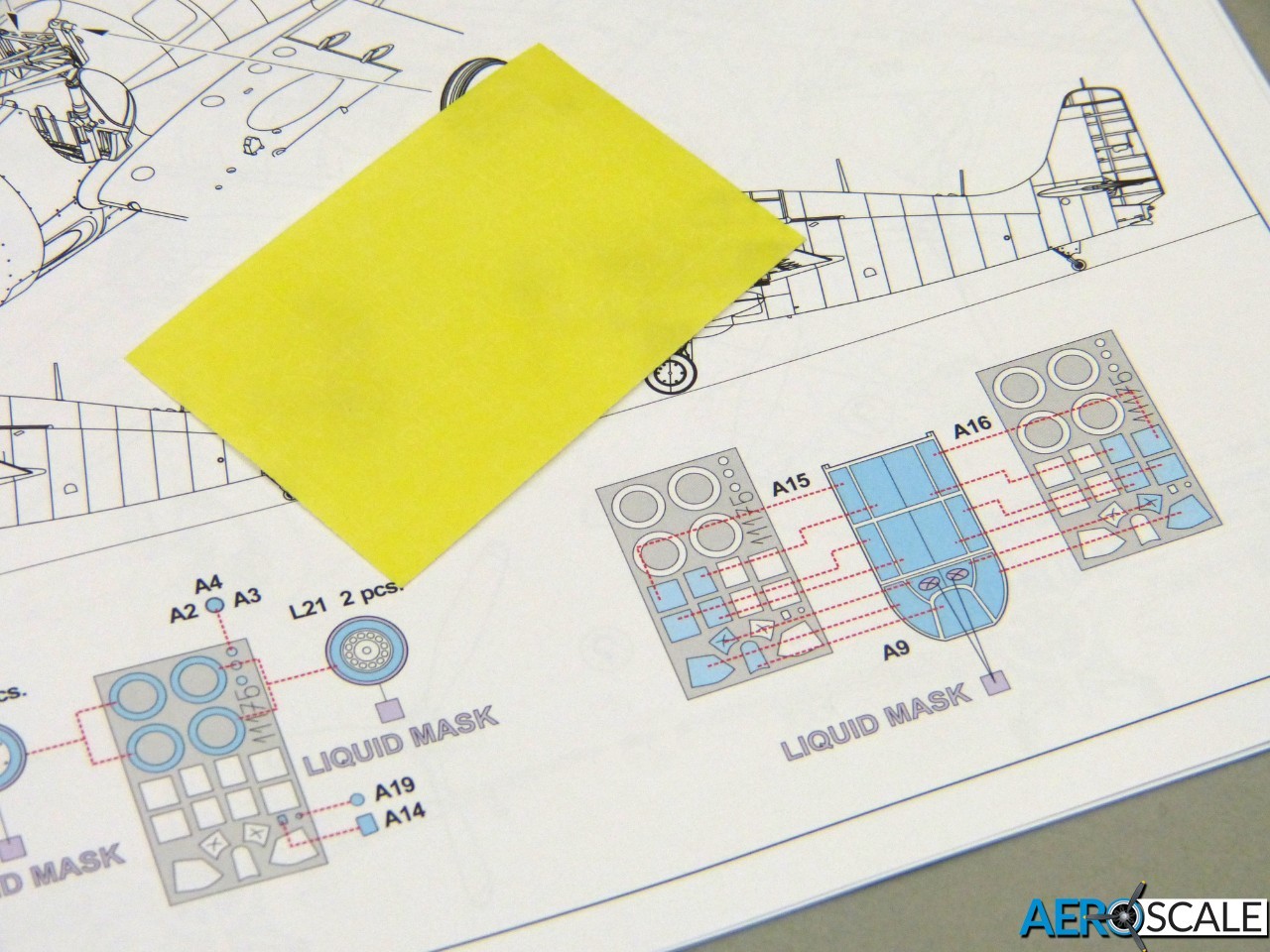
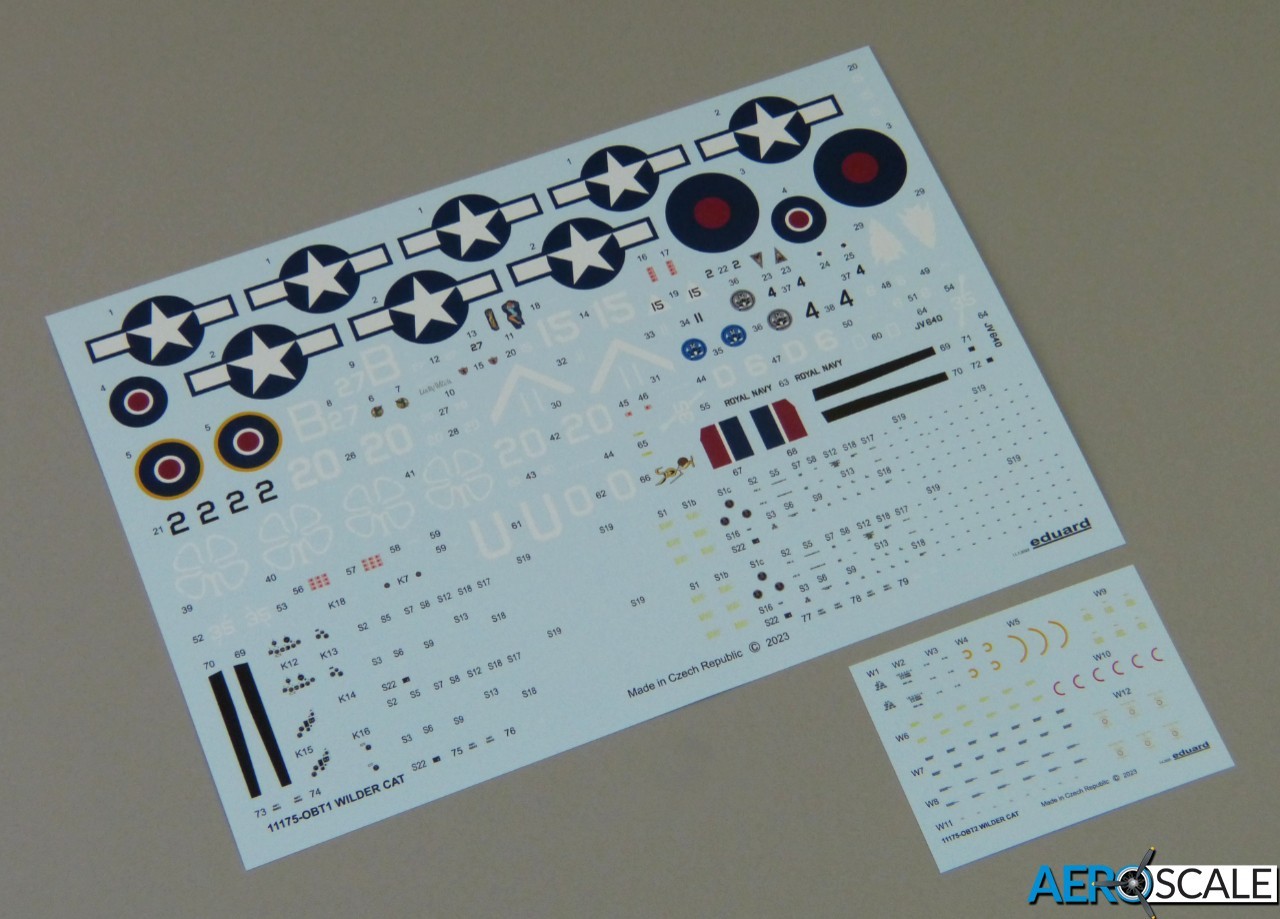
The kit includes three new runners specific to the FM-2 along with the parts that are shared by other variants in Eduard's range. The moulding quality is superb, with exceptionally fine surface finishing that features delicate raised and embossed rivets and fasteners, very fine panel lines, plus some raised panels. Fabric surfaces are depicted realistically taught and include rib tapes (technically a bit too prominent - but you can always tone them down if you wish). Overall, this represents the current state of the art for mainstream moulding.
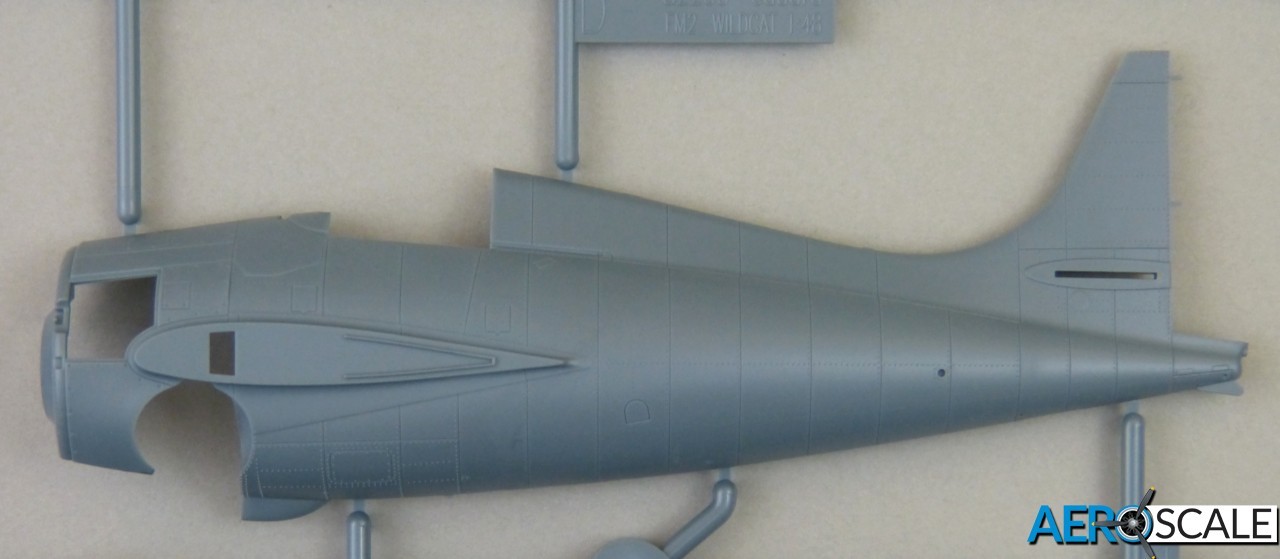
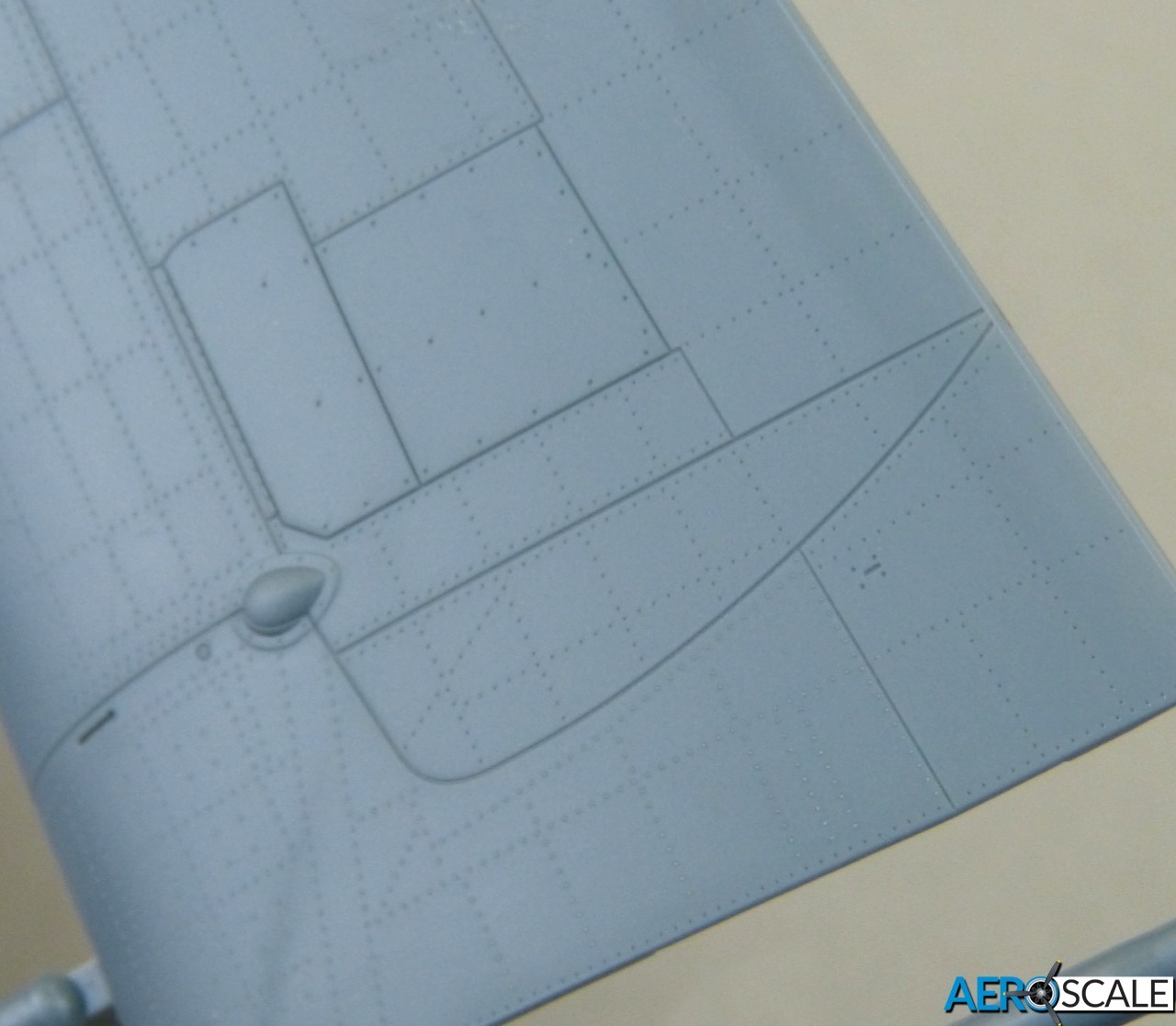
I'll concentrate mostly on what's new in the FM-2. To see the fuller overviews of the previous boxing, please refer to the following links:
https://aeroscale.net/news/grumman-f4f-3-wildcat
https://aeroscale.net/news/f4f-4-wildcat-early-profipack
The new fuselage halves obviously feature the distinctive tall tail and plated-over belly windows, but another change is behind the engine cowling, where the exhaust outlets are rearranged, with two at the bottom of the fuselage and a second pair on the sides exiting over the wings. Whereas previous kits in the range were moulded solid in the latter area, it's now an open section ready for a choice of three different styles of exhaust outlet recesses.
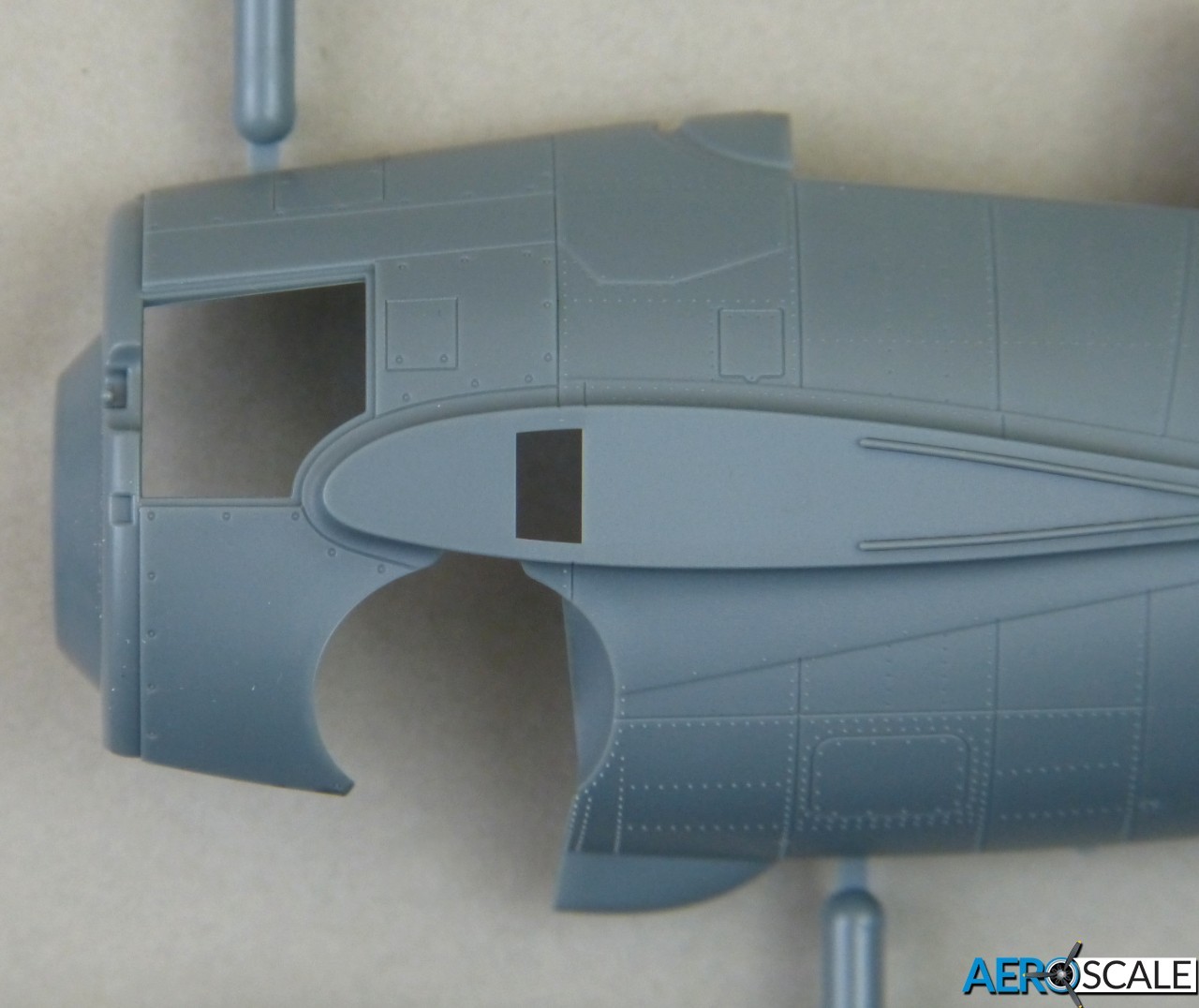
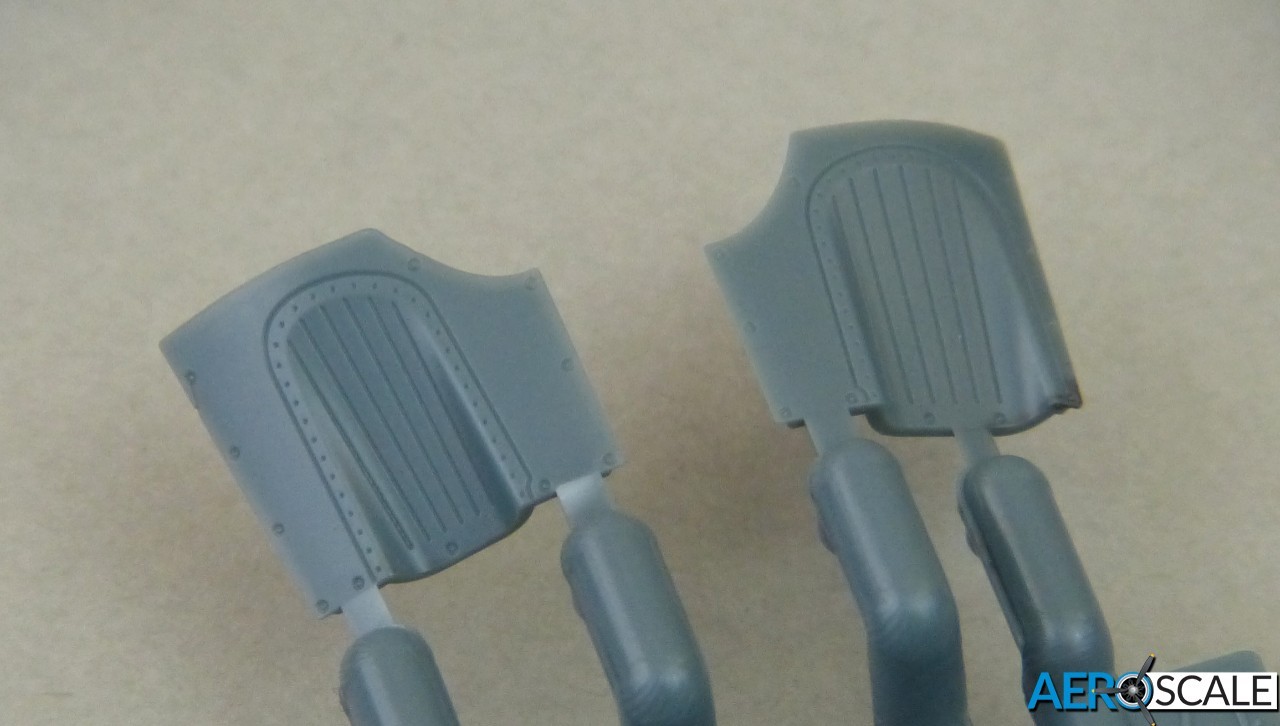
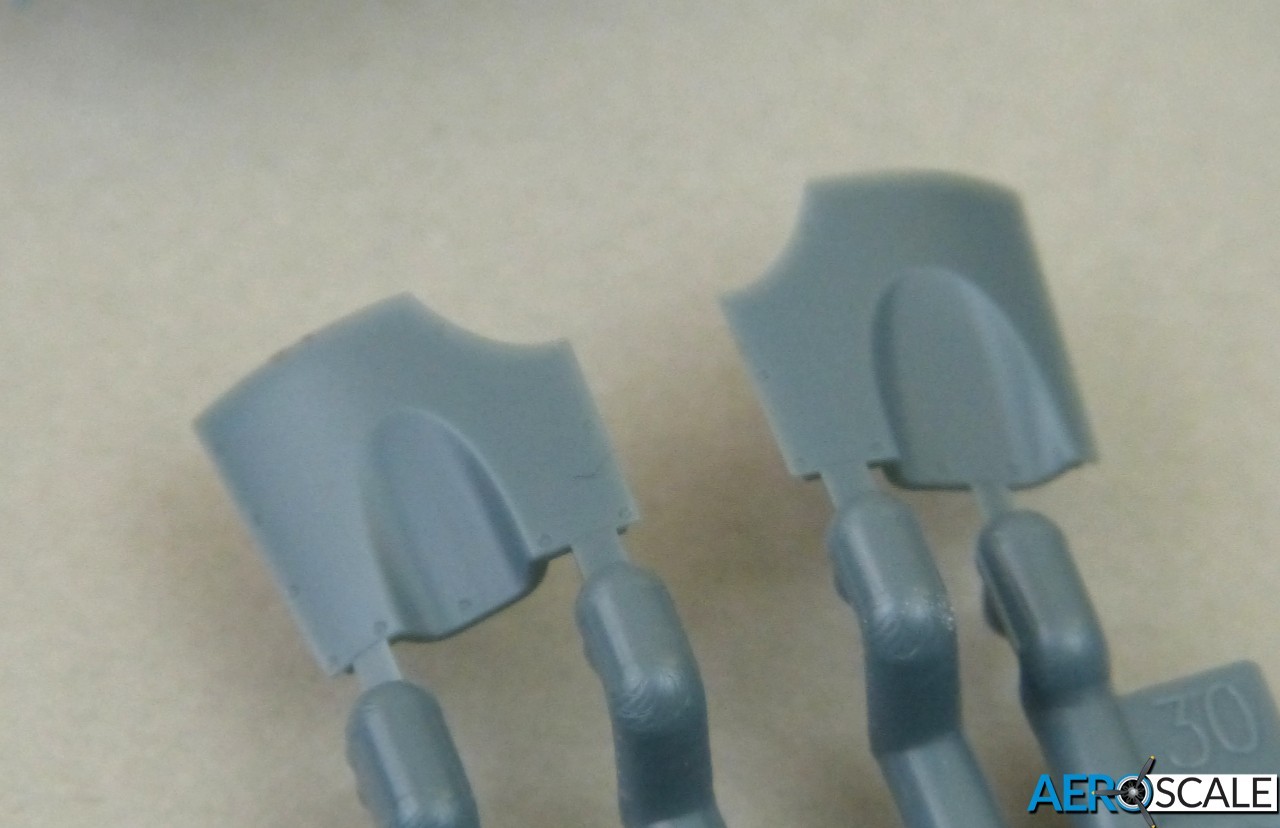
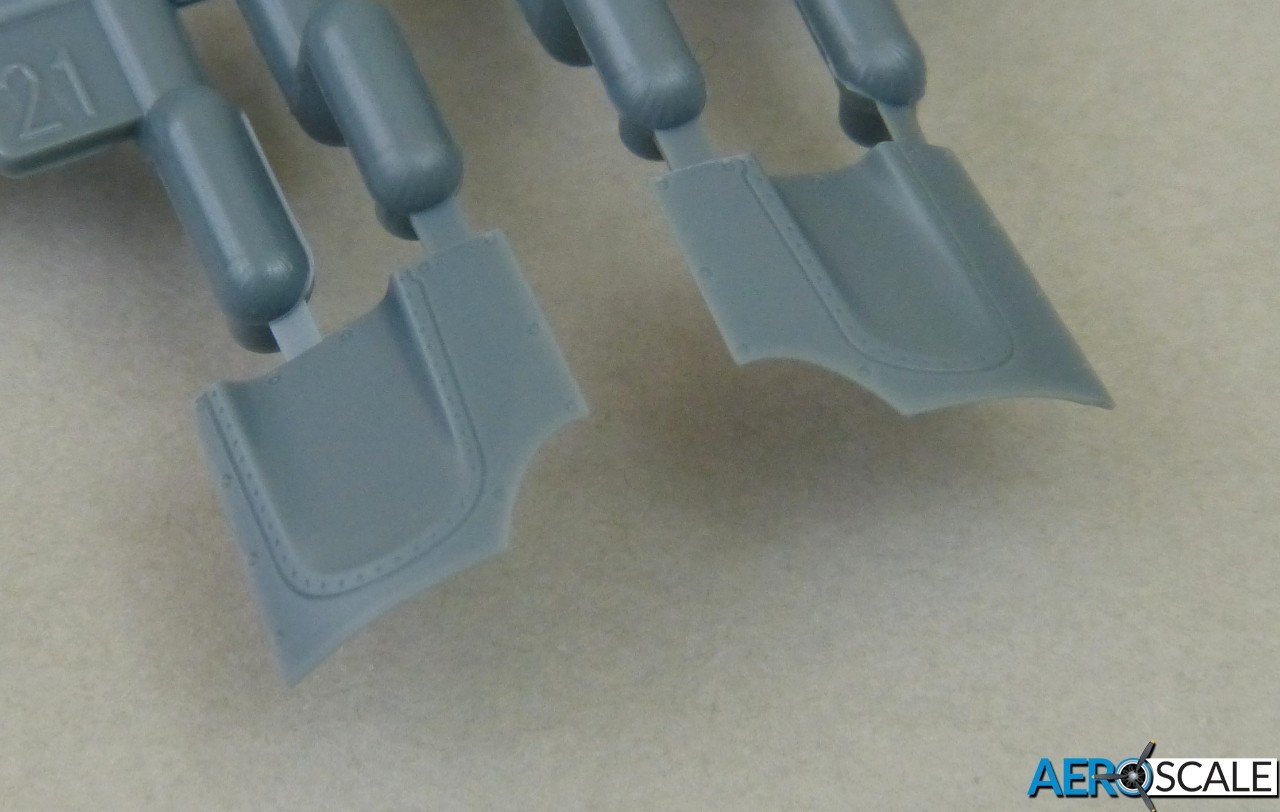
The cockpit is broadly the same as earlier variants, but a clear change over the first Wildcats is the inclusion of armour behind the pilot.
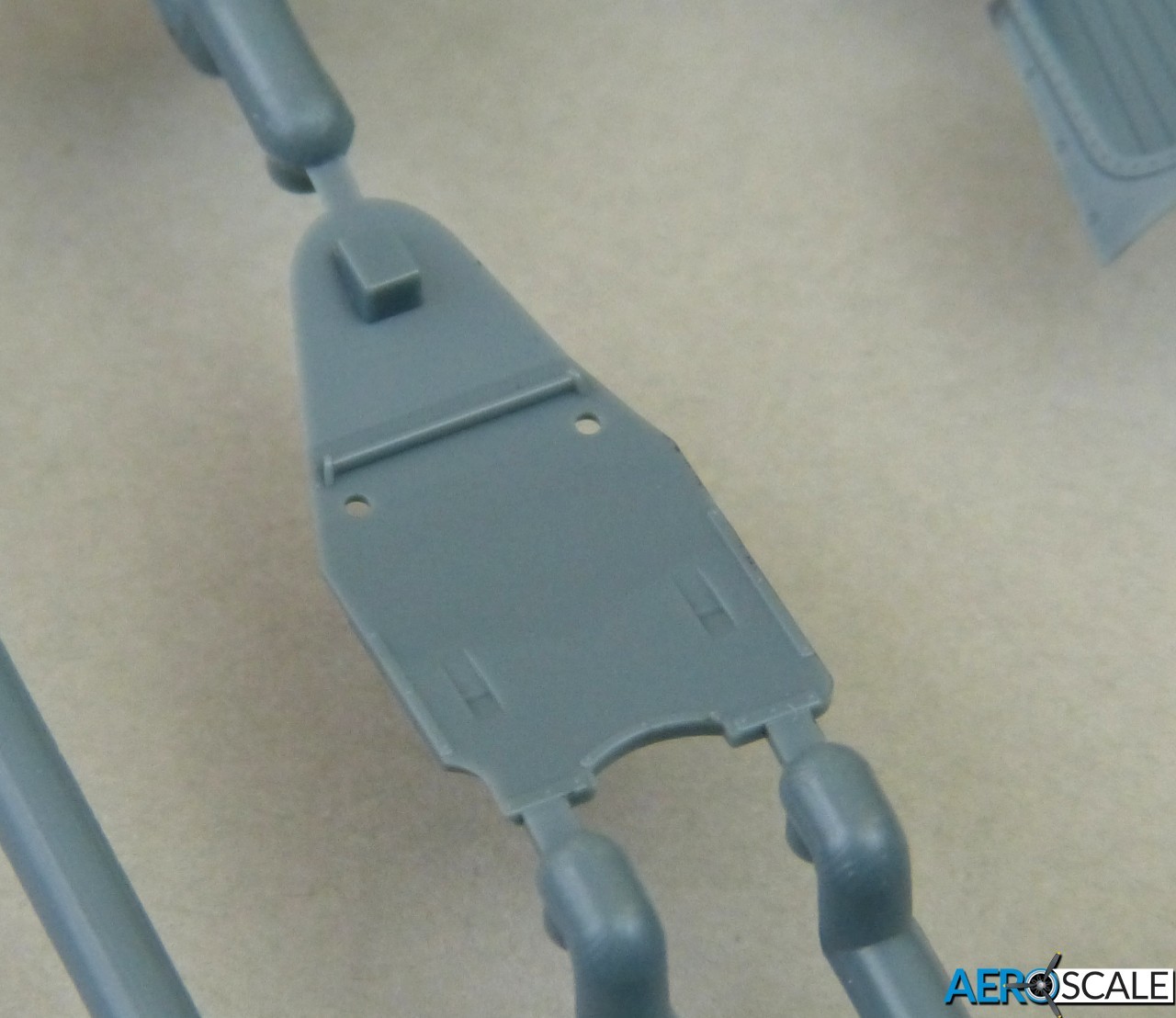
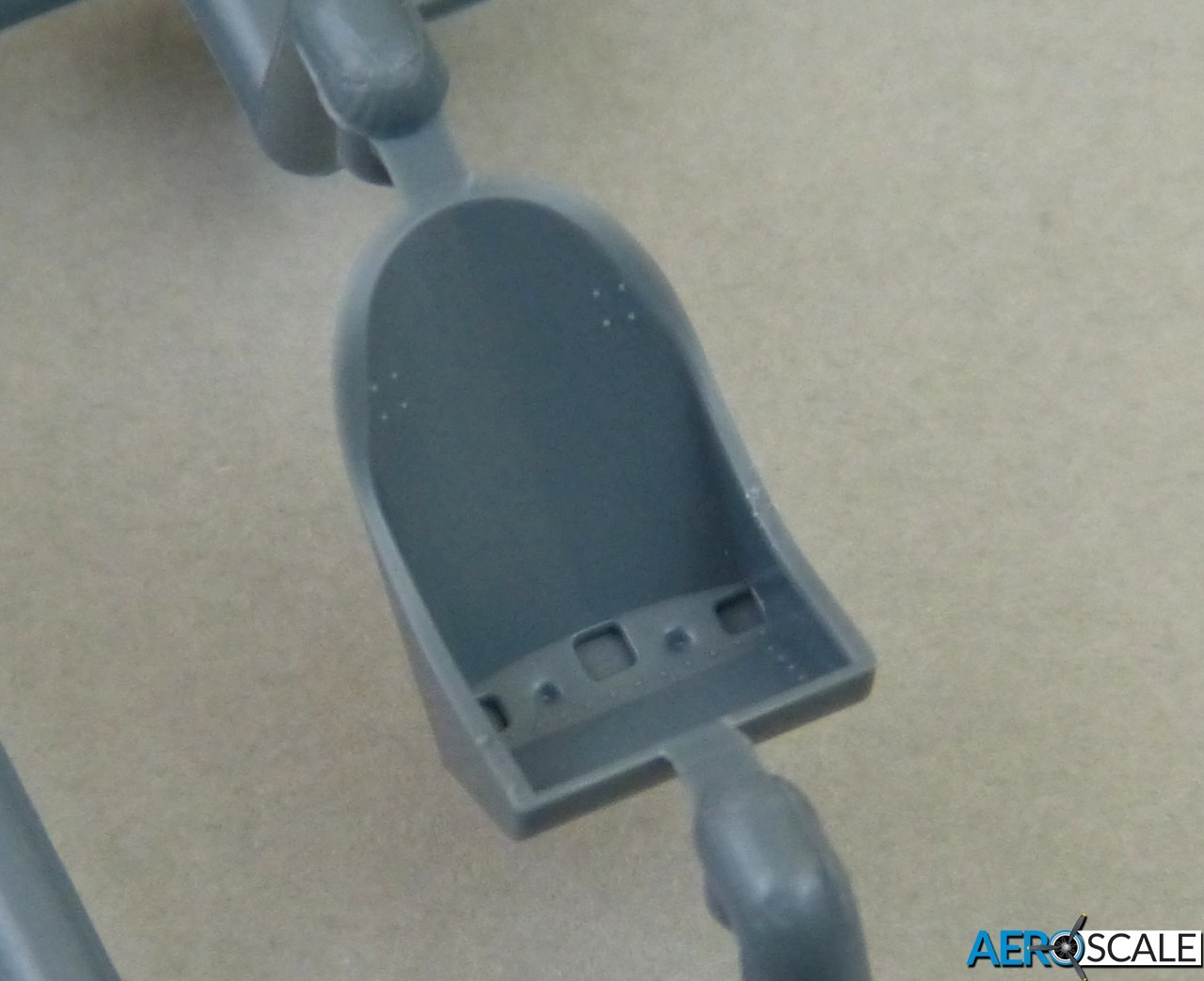
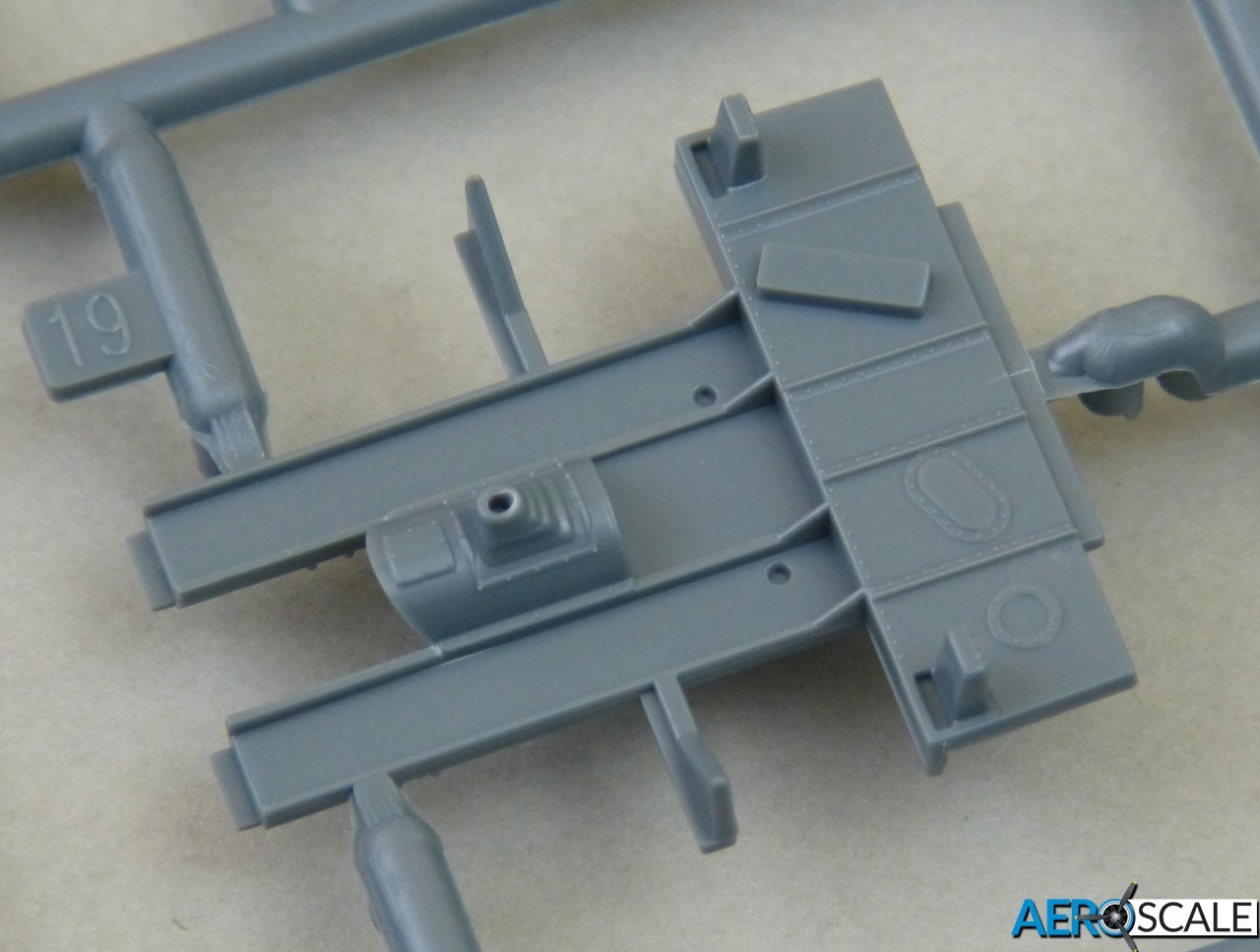
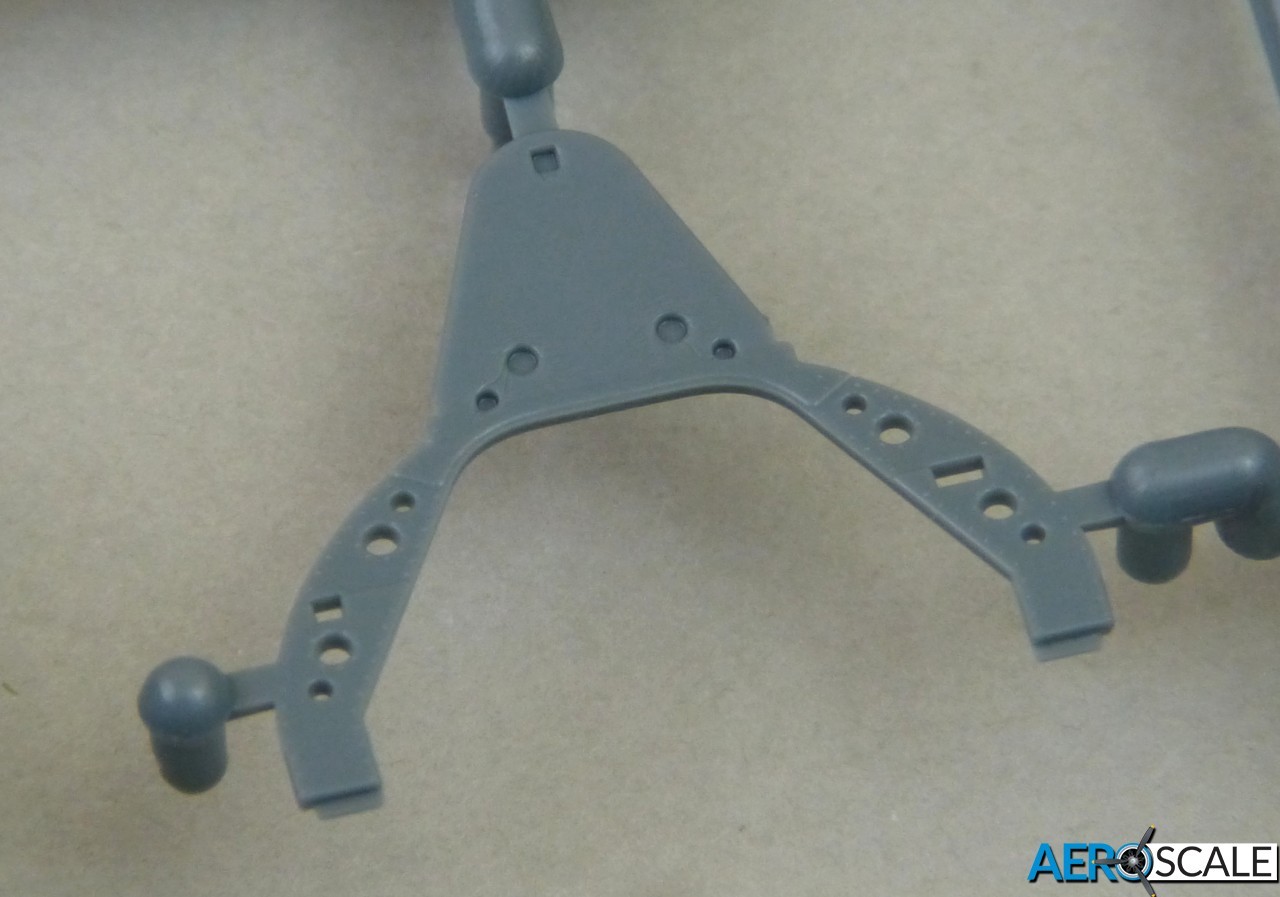
The instrument panel is portrayed in two ways - moulded bezels with decals for the instrument faces, or a pre-coloured photo-etched sandwich.
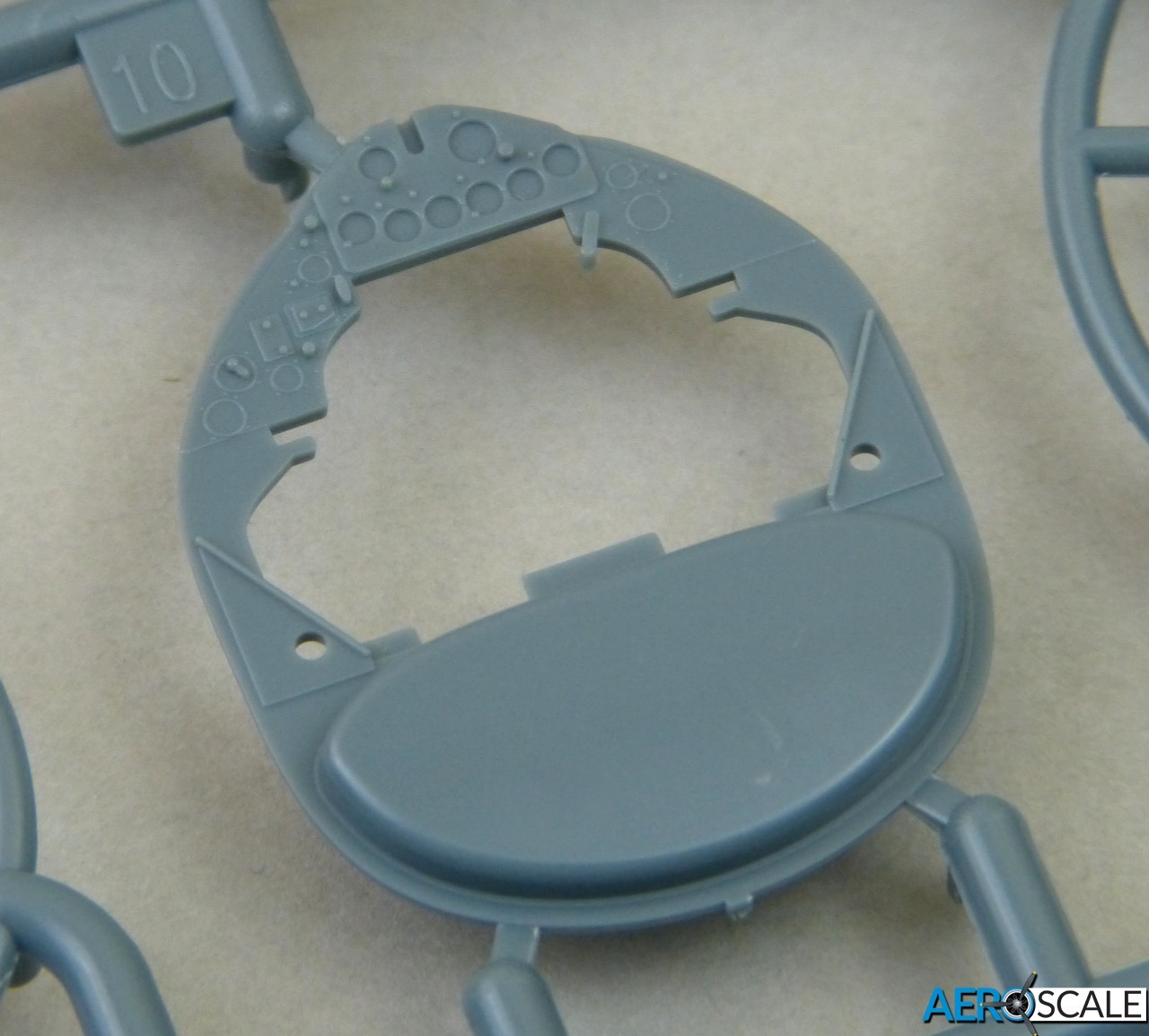
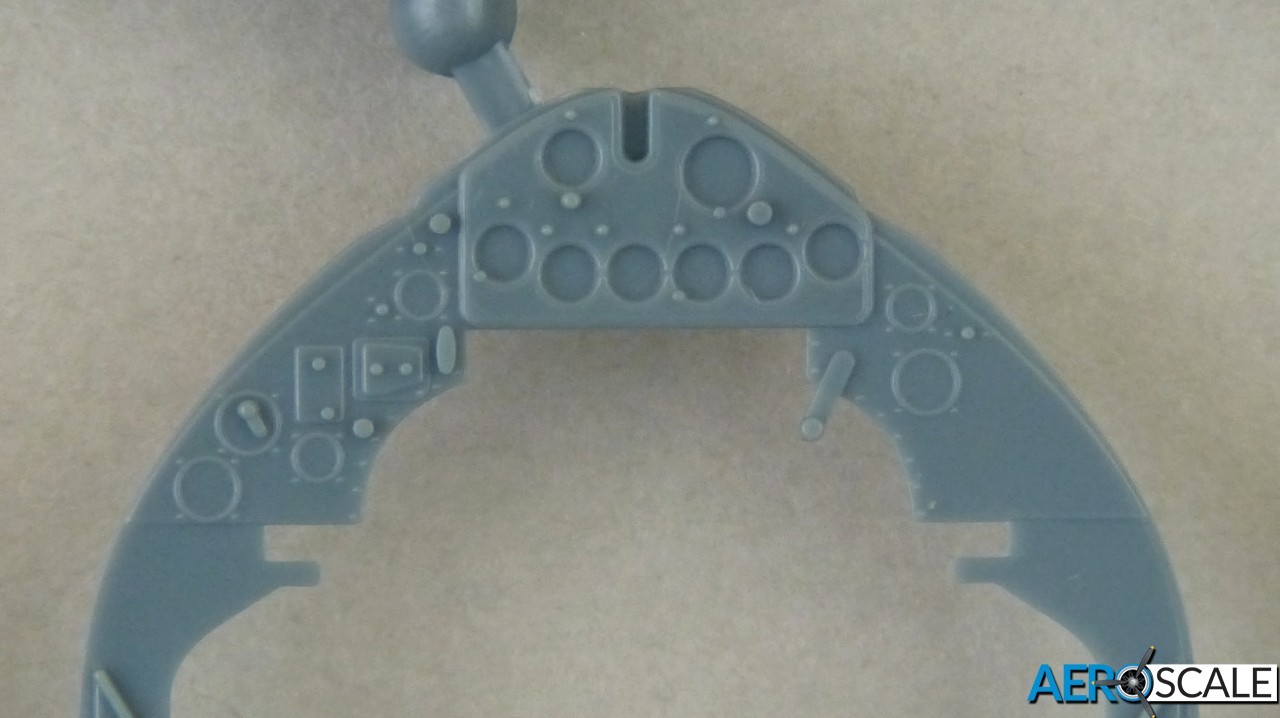
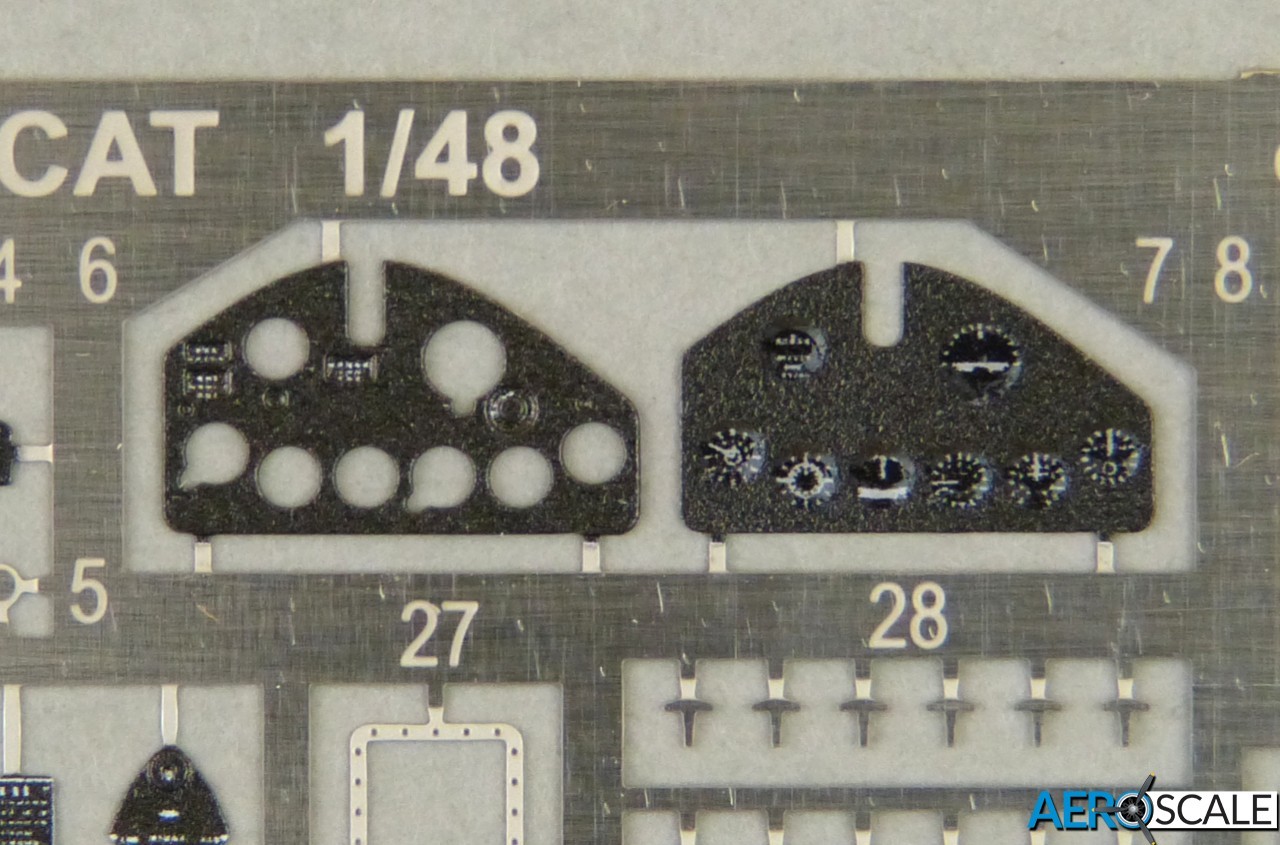
The new engine is a single-row radial with a corresponding shorter cowling and a single cooling flap on each side. The cowl front no longer has the distinctive carburettor intake on the lip.
The R-1820 itself is very straightforward - just a moulded row of cylinders, with a separate cranckcase and a set of pushrods. It would have been nice if an ignition harness had been included among the etched parts (despite my early doubts, this can look surprisingly effective), but it won't be hard to add one from scratch.
The engine accessories pack is unchanged, but the intercoolers are replaced by a an oil cooler which is visible at the front of the wheel well. This means the old oil coolers under the wings are deleted, with their previous positions evident with plated over panels.
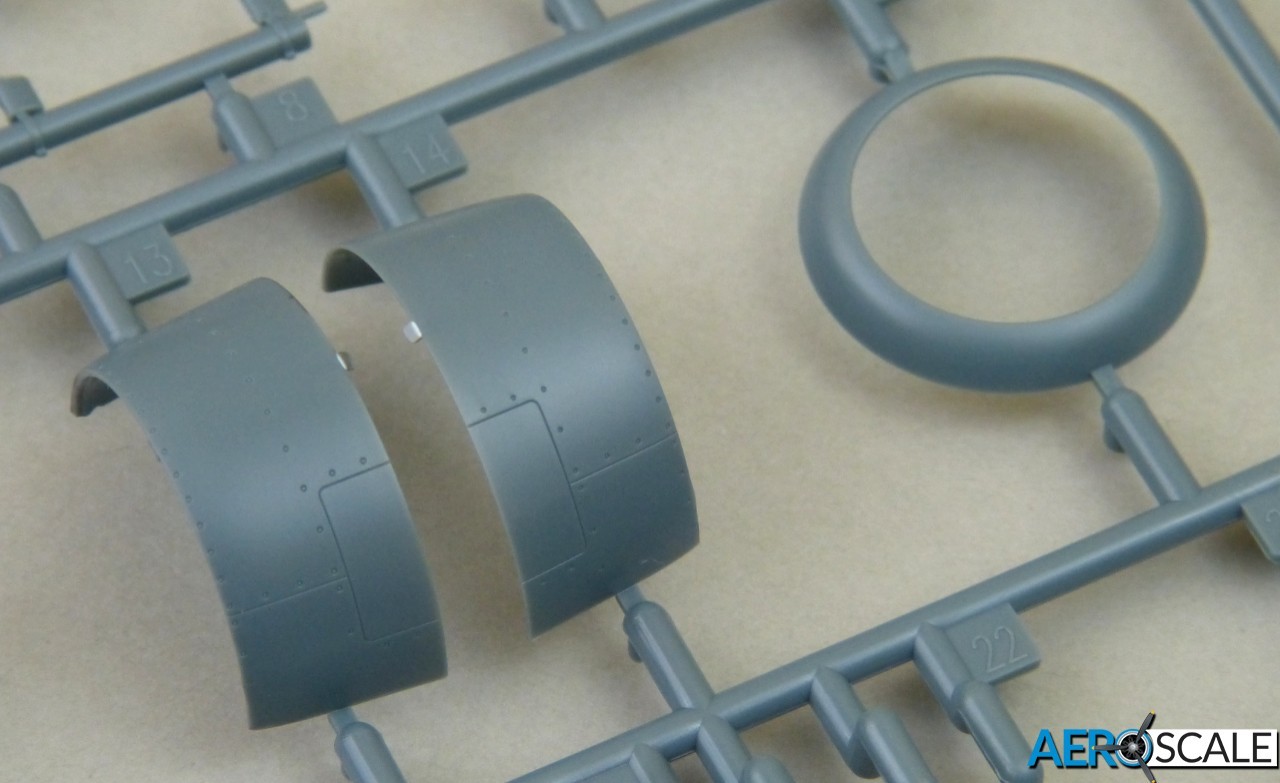
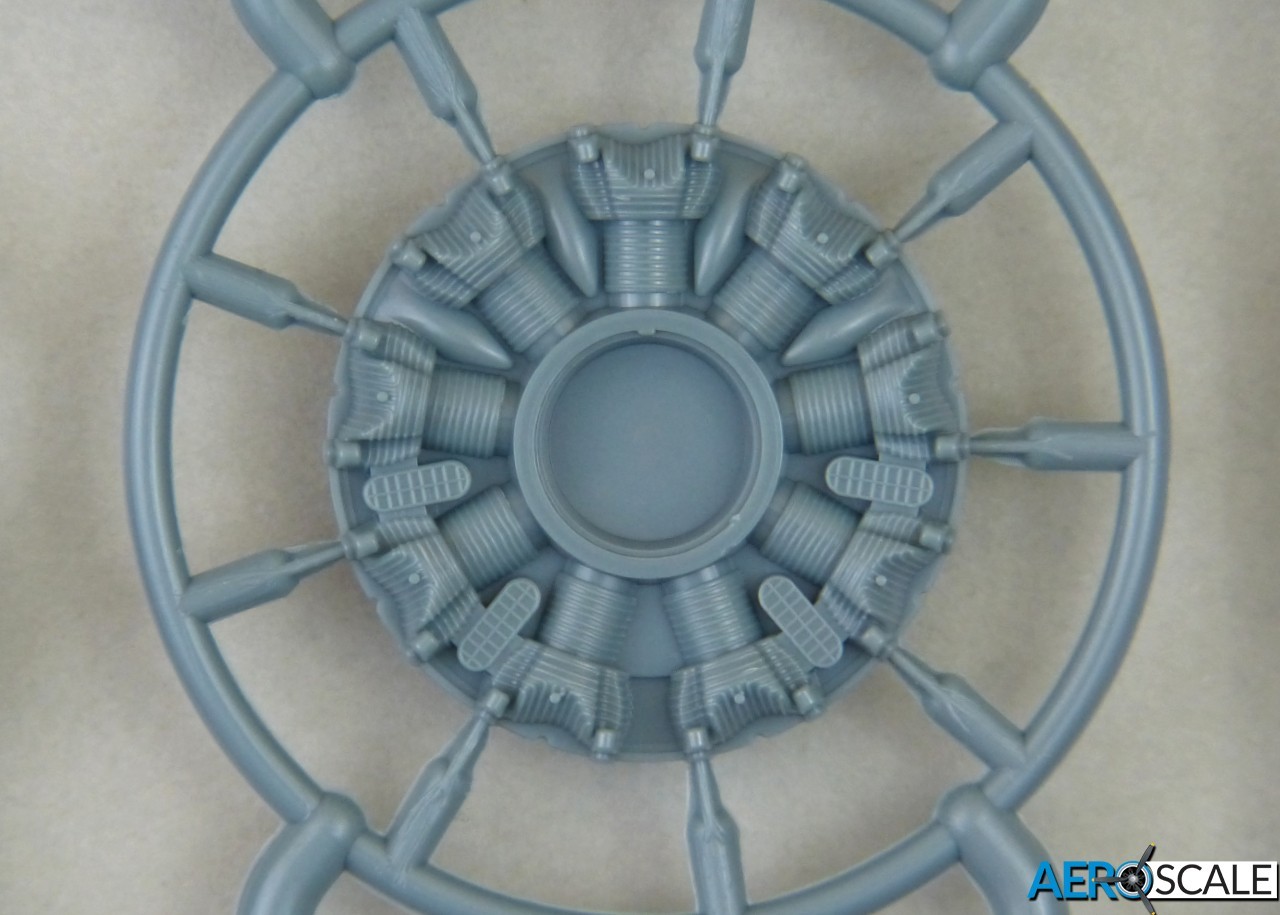
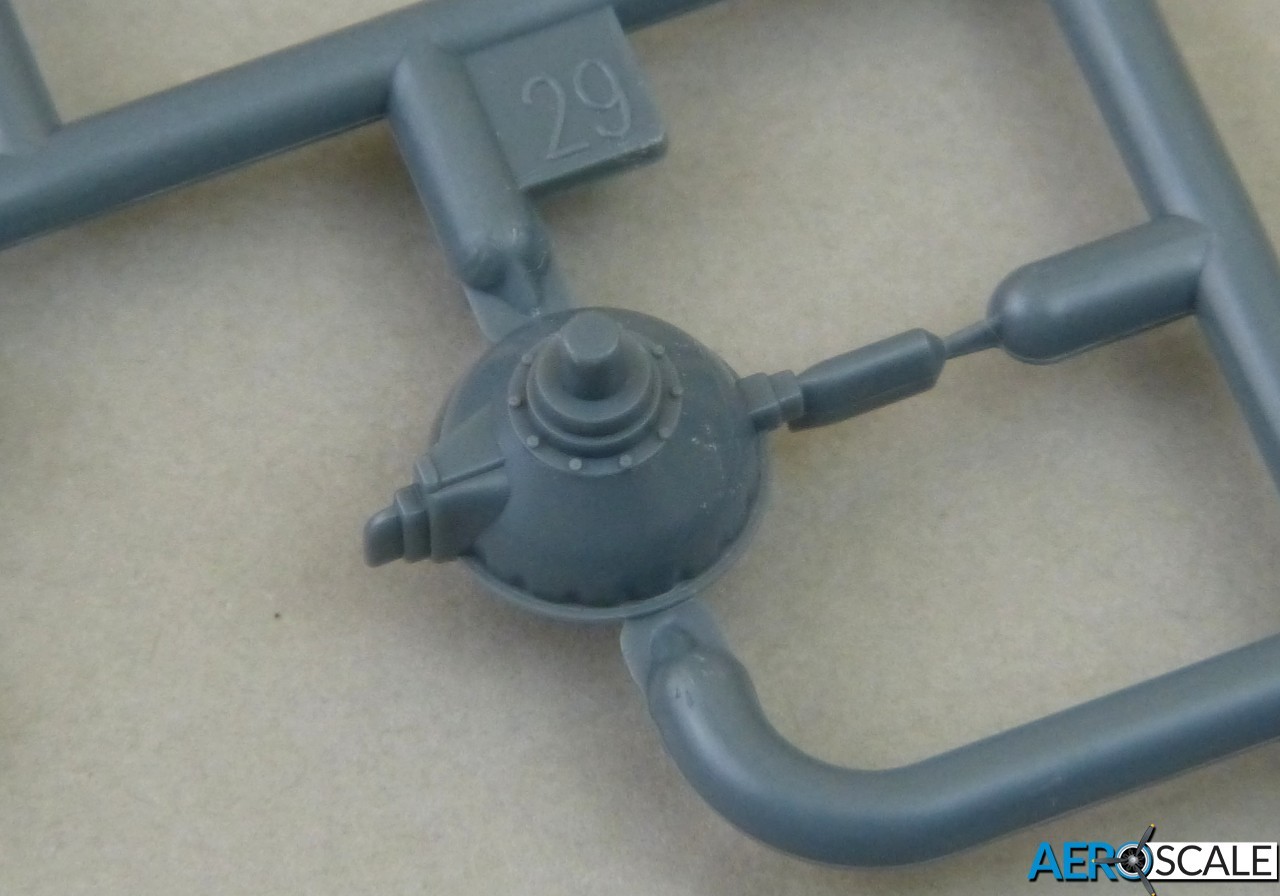
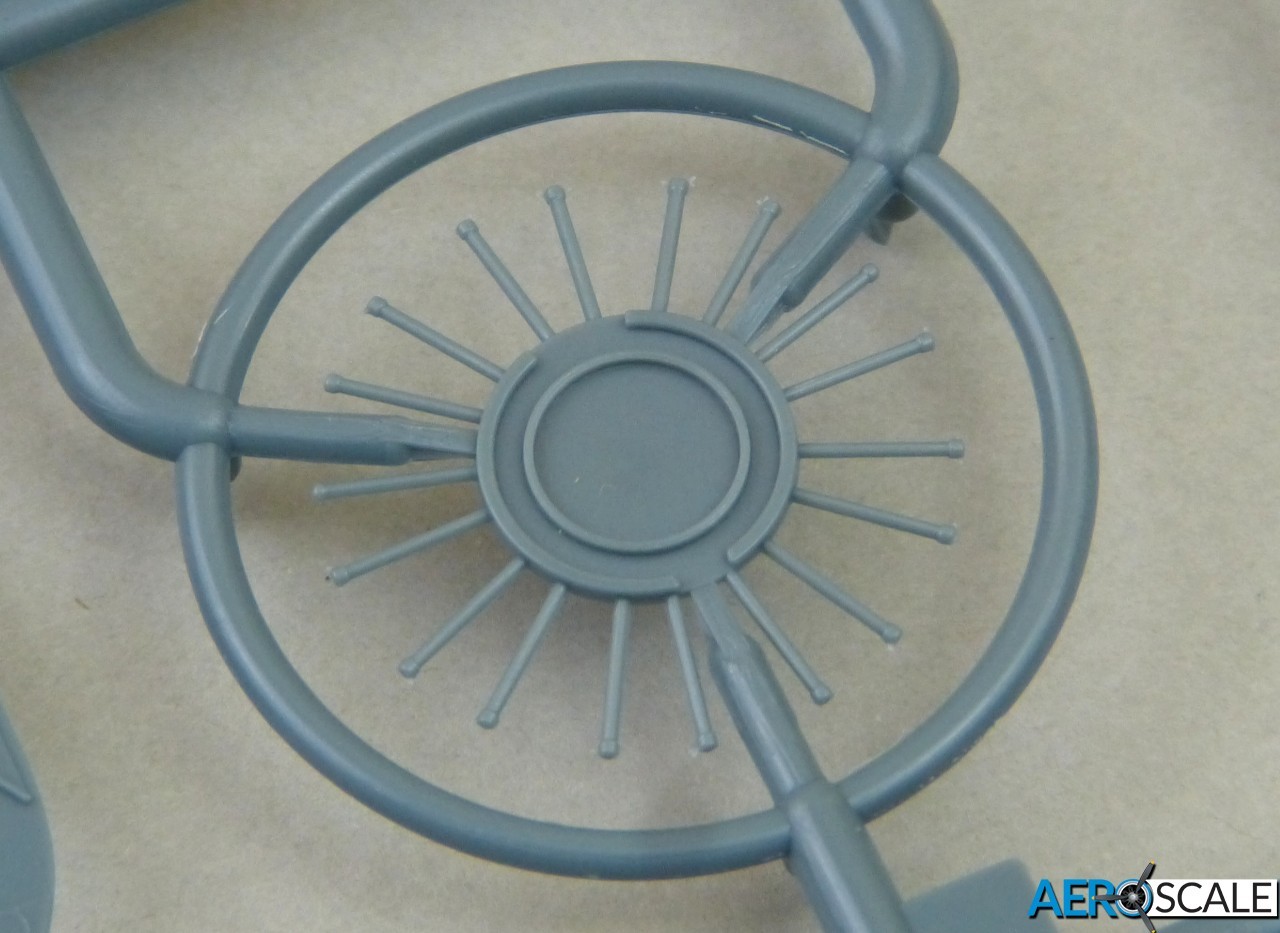
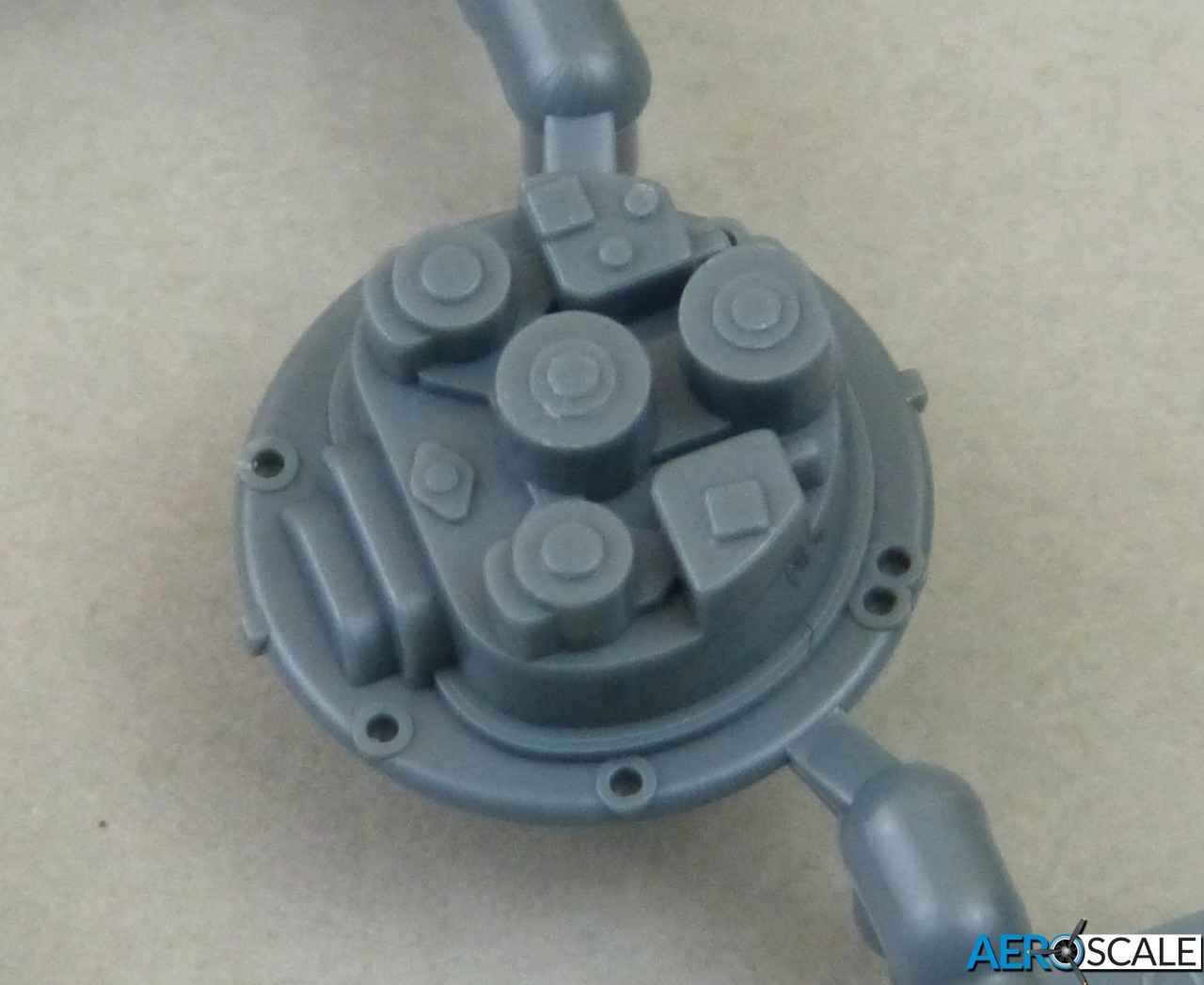
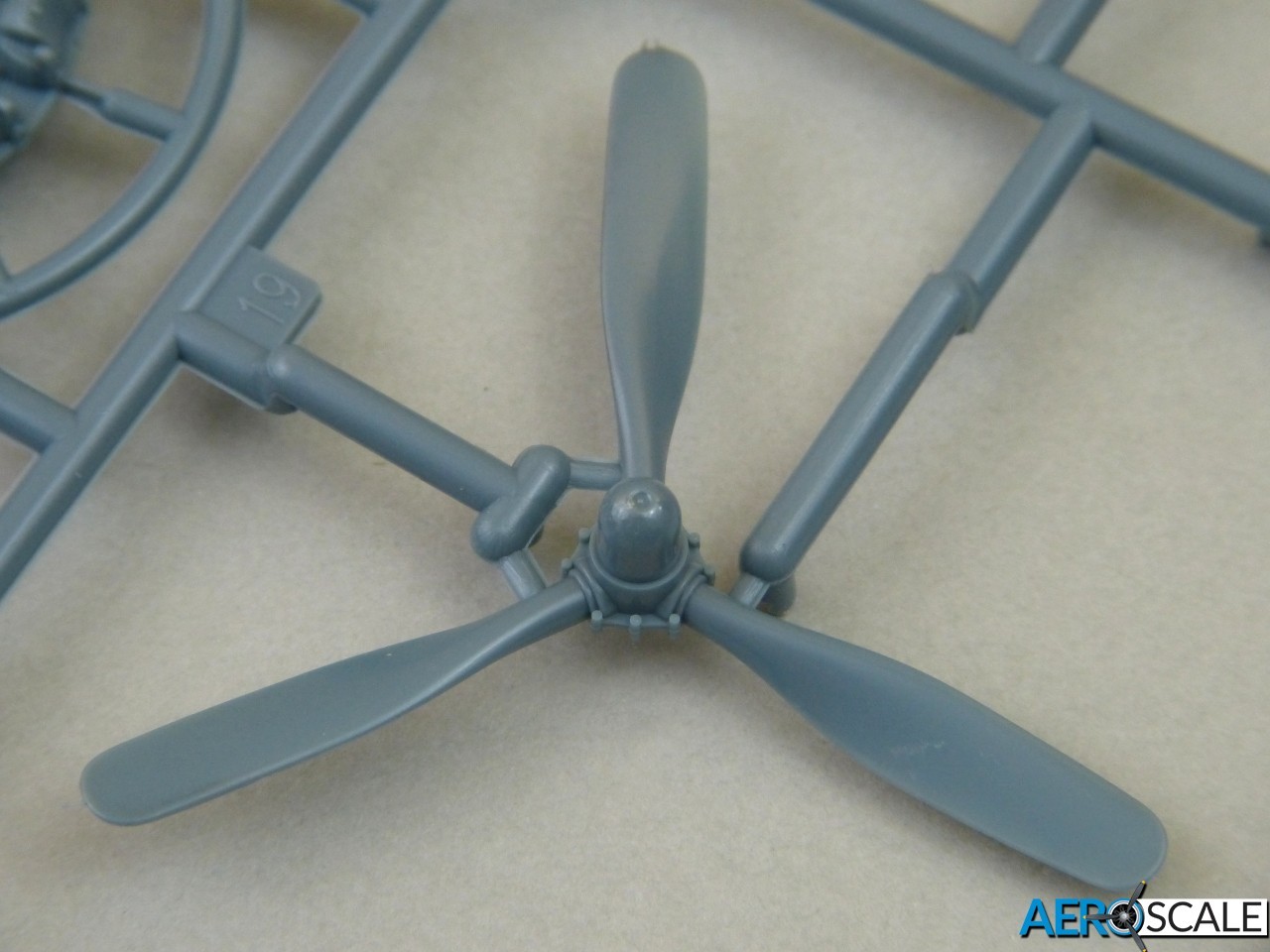
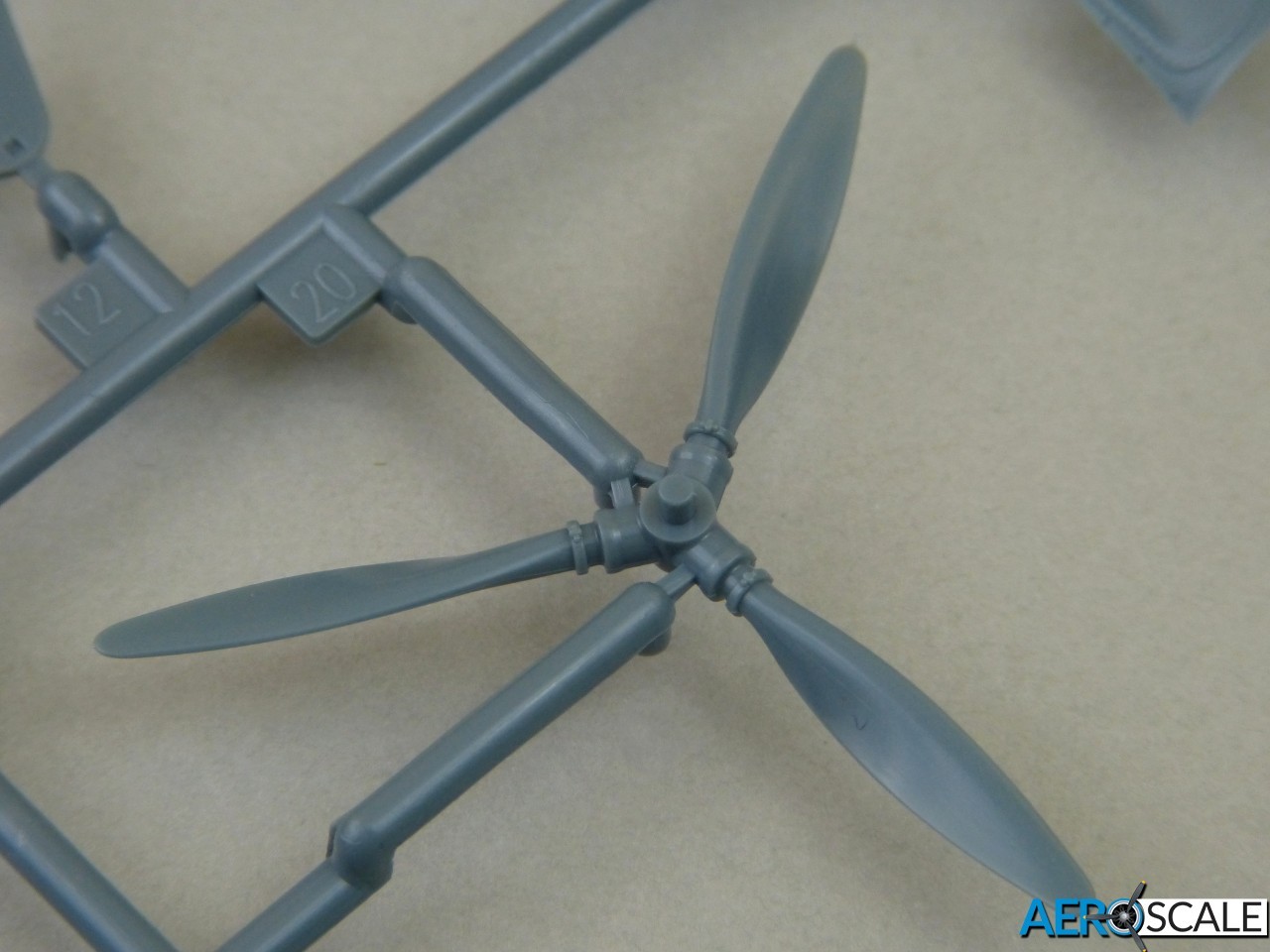
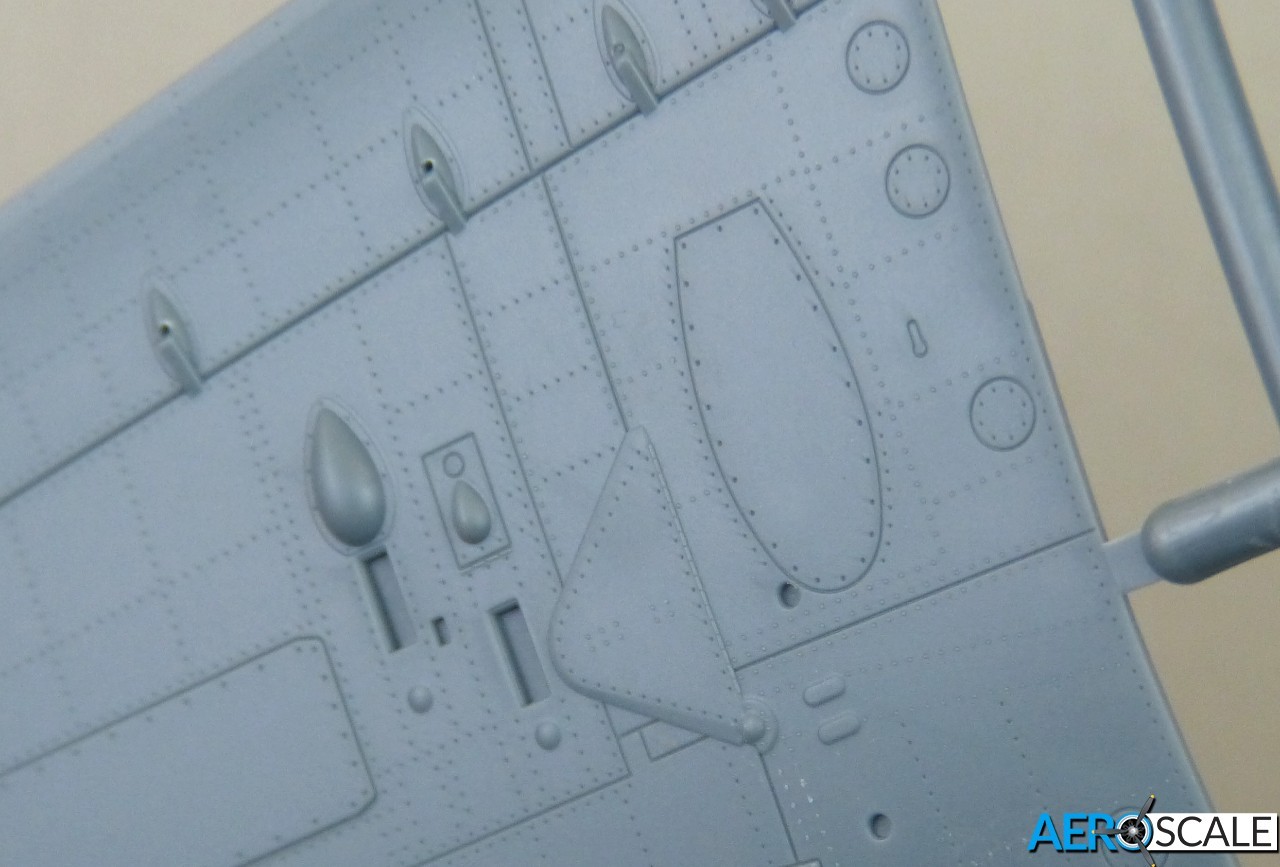
The FM-2 saw a radical change in the Widcat's potential firepower. Although it only mounted 4 x .50 calibre machine guns, it was now equipped to carry up to six 5in rocket projectiles - either HVARs or FFARs - on zero-length rails.
These are included in the kit, with the FFARs installed on the Wildcat VI, but note that Valiant Wings' new Airframe & Miniatures No. 22 states that they were not used operational by the Royal Navy as far as is known. The rockets are neatly moulded with separate tails, but the fins are inevitably a bit thick and would look better replaced with plastic card. It's a shame Eduard didn't include photo-etched alternative parts.
As with previous boxings, there's also a pair of 100 lb bombs and racks as alternatives to the rockets, plus 58 gallon drop tanks to mount under the inboard wing sections.
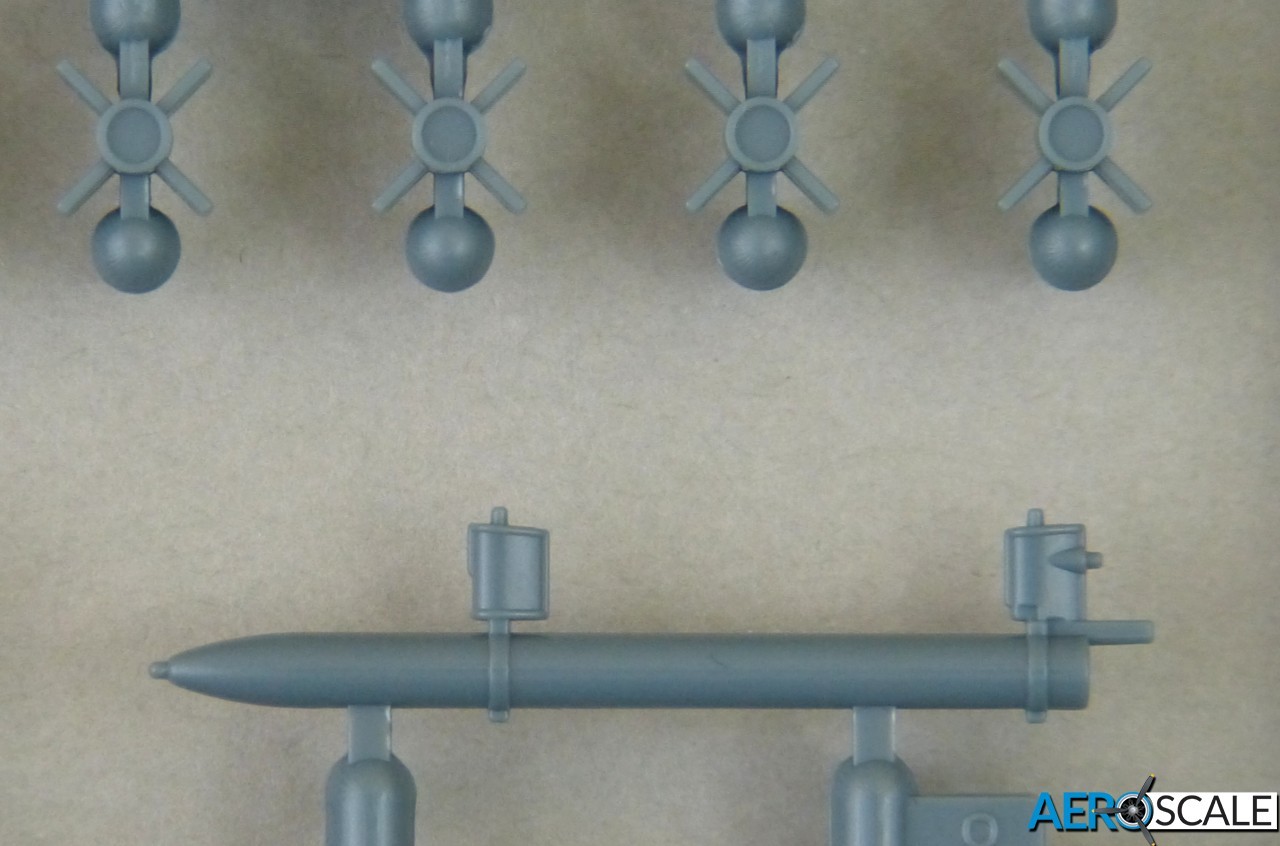
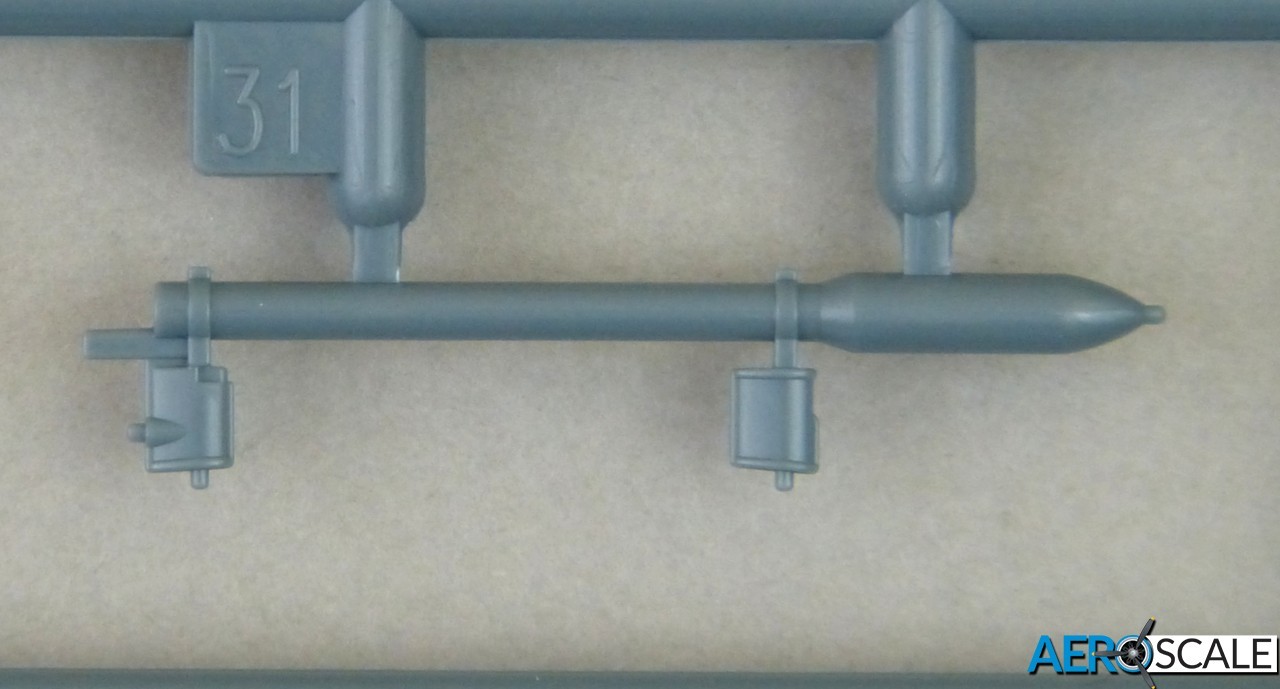
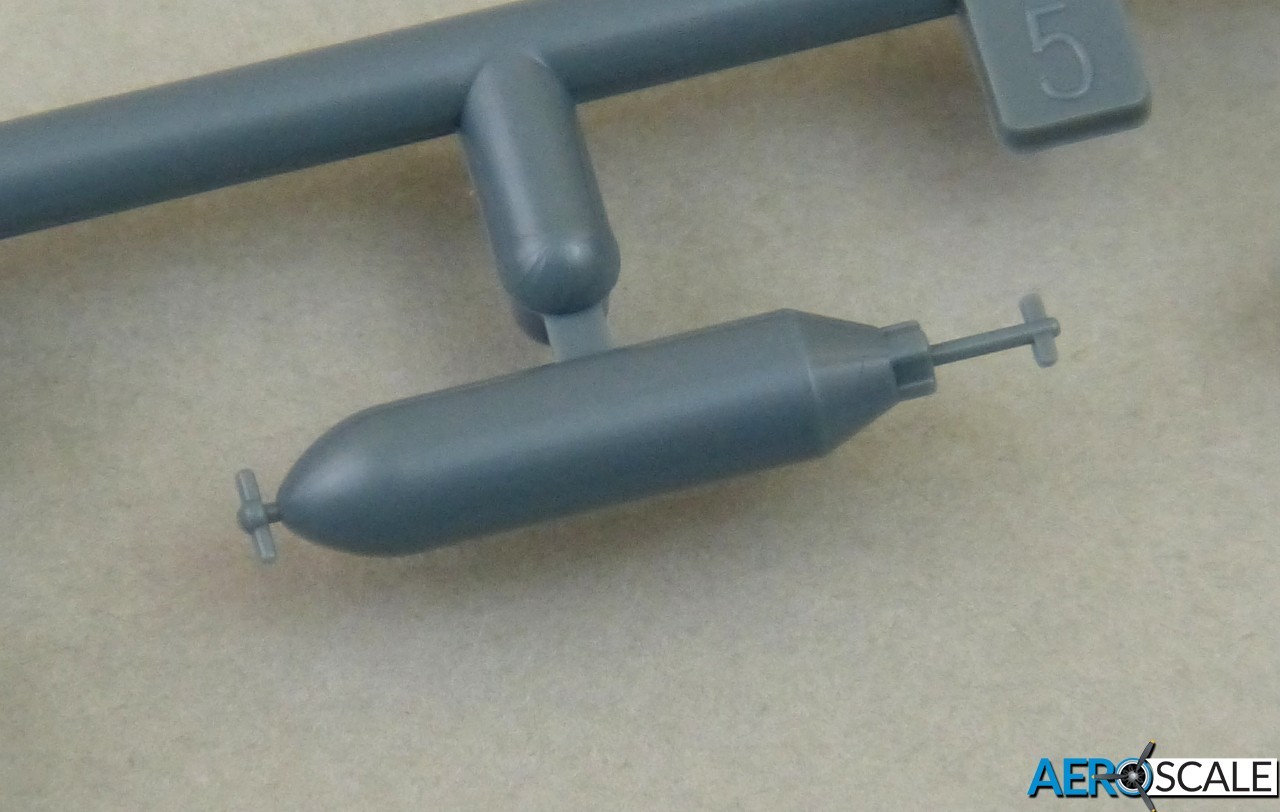
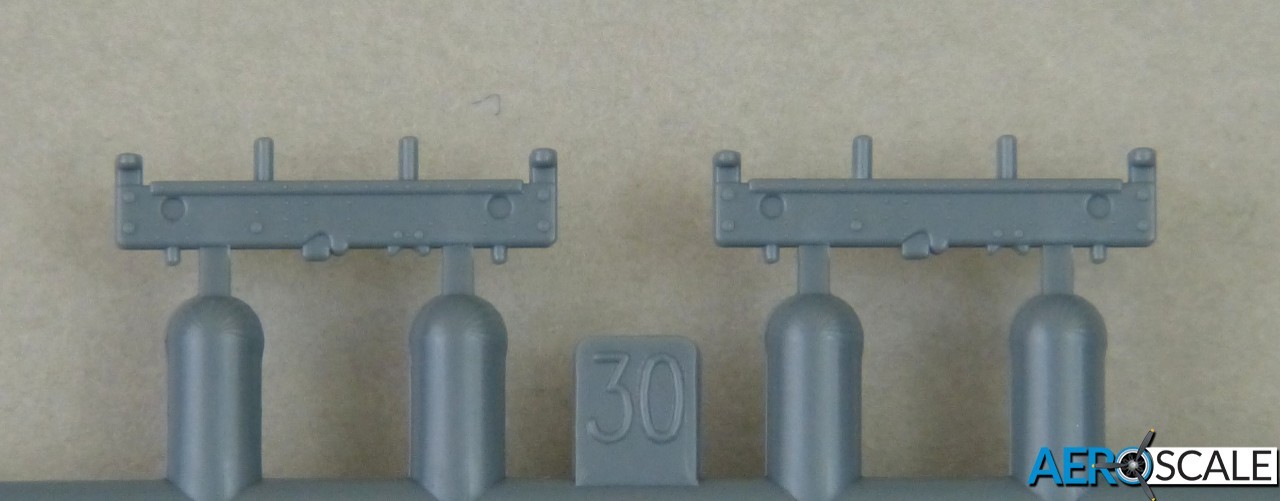
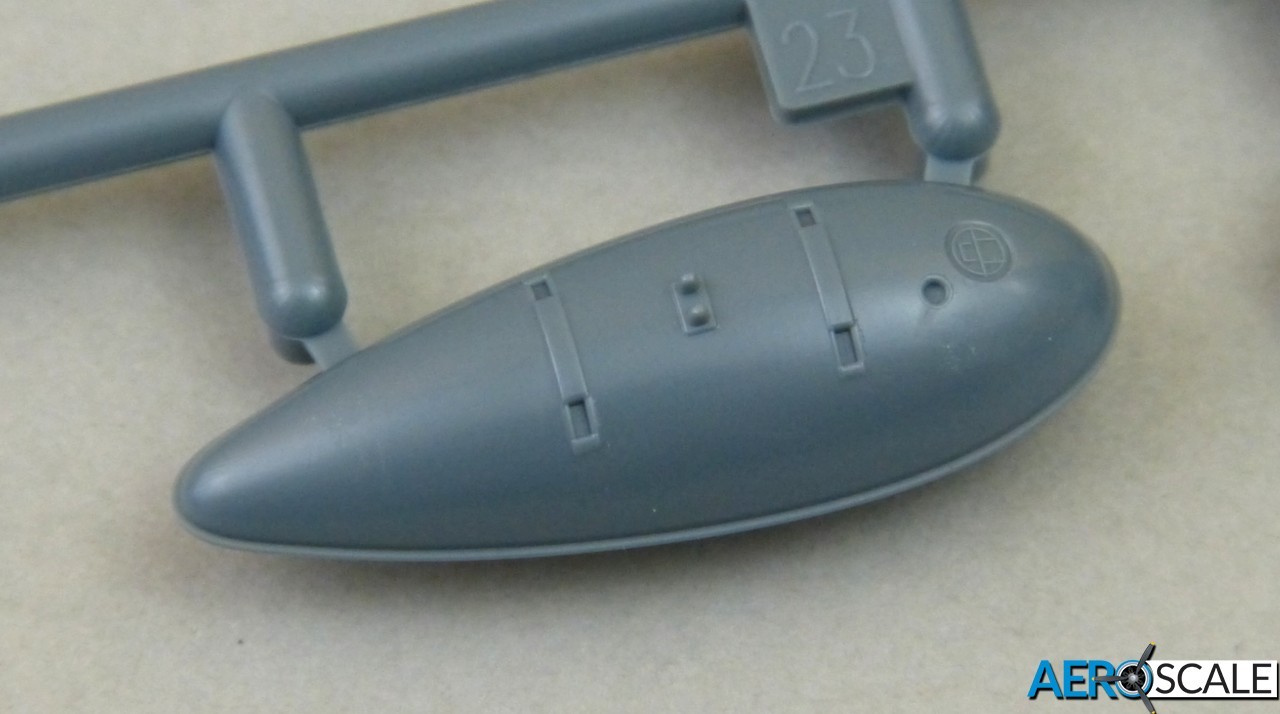
Instructions, Painting & Decals
In common with other Eduard Hi-Tech kits, the instructions are beautifully produced. Printed as a full colour A4 booklet on high quality stock, the 28 page guide includes a magazine-quality historical guide to the FM-2, complete with useful period reference photos.
The instructions themselves are clearly illustrated, and the construction sequence is logical. Colour matches to Gunze Sangyo paints are included throughout.
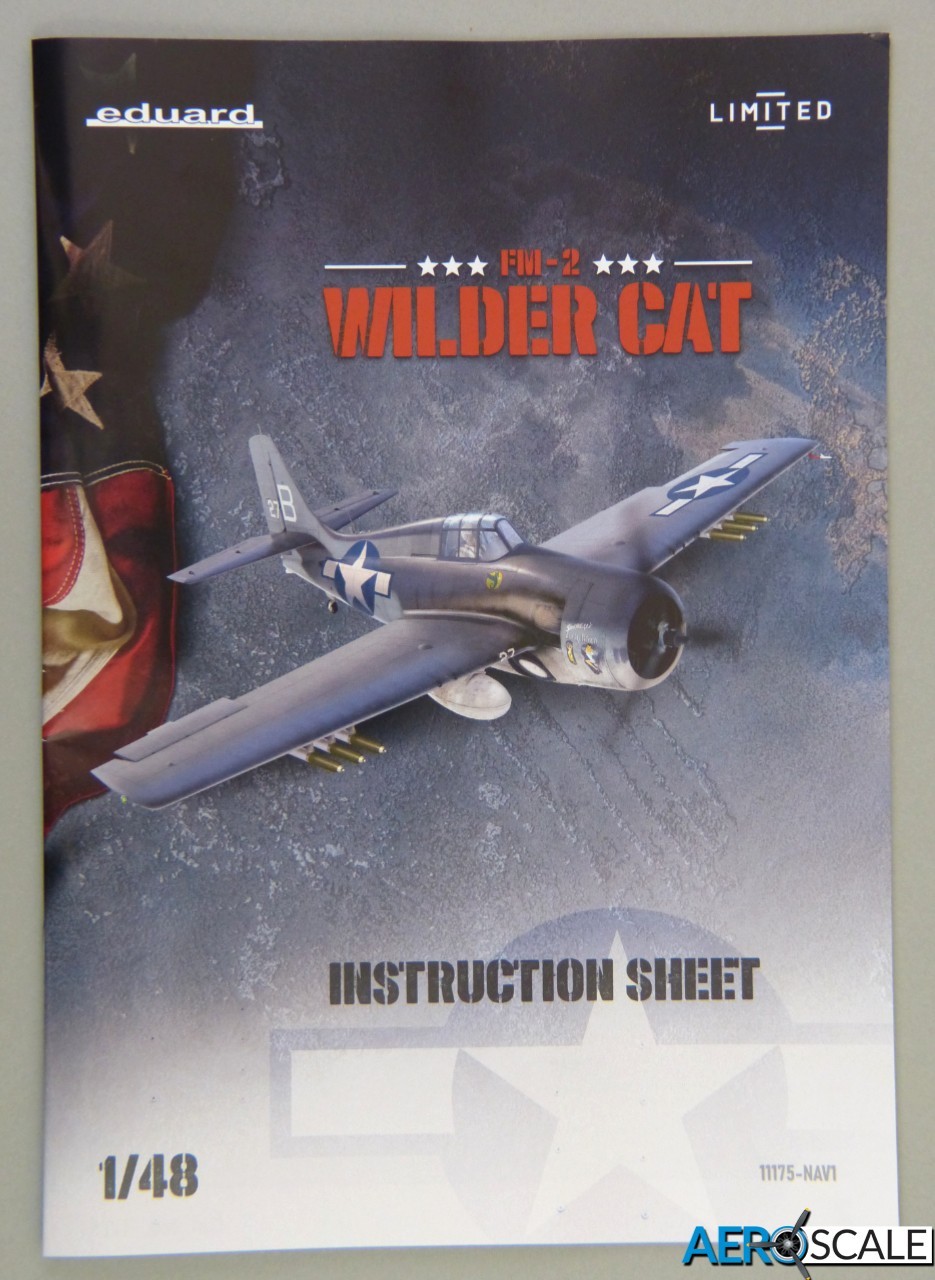
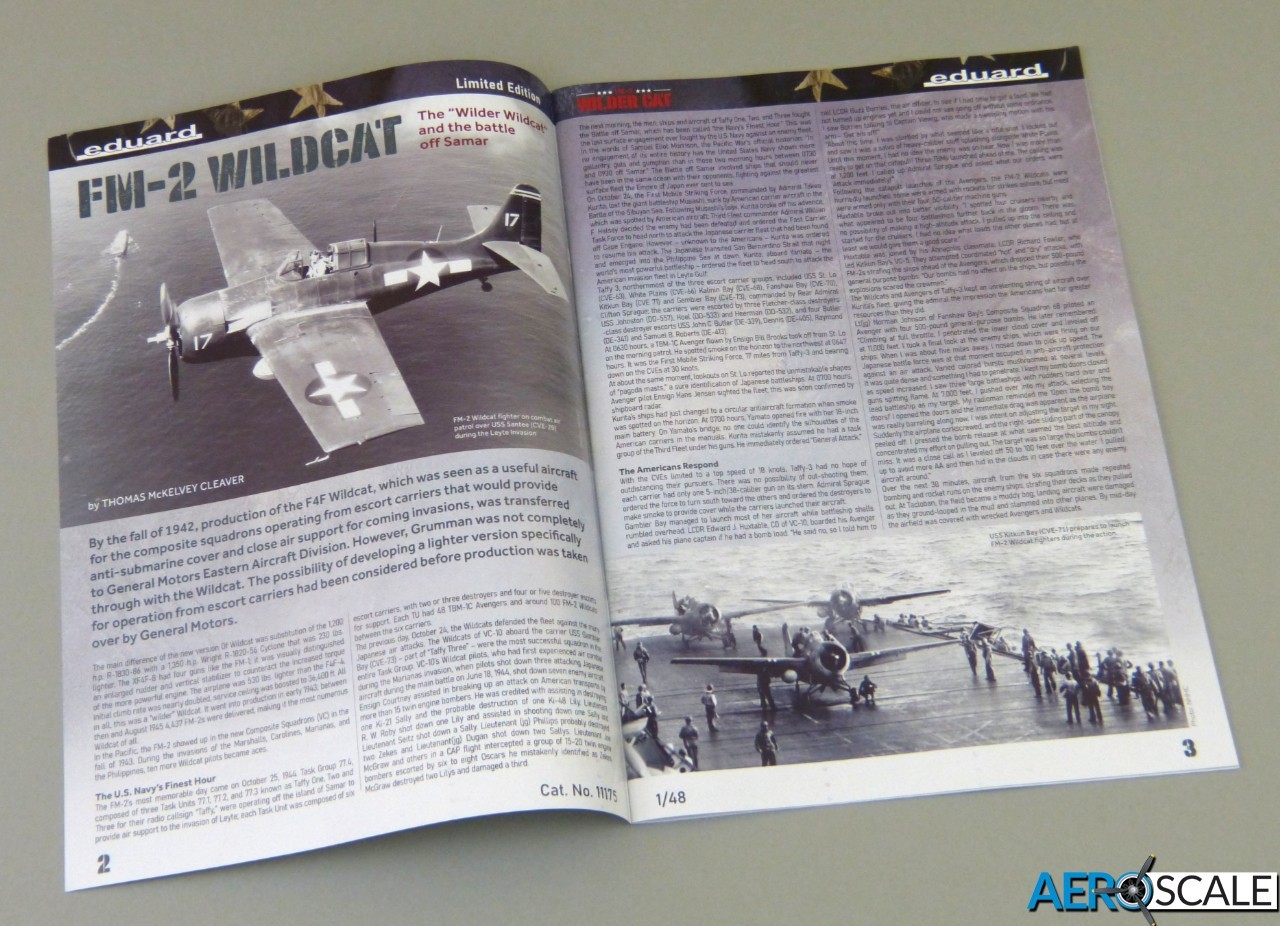
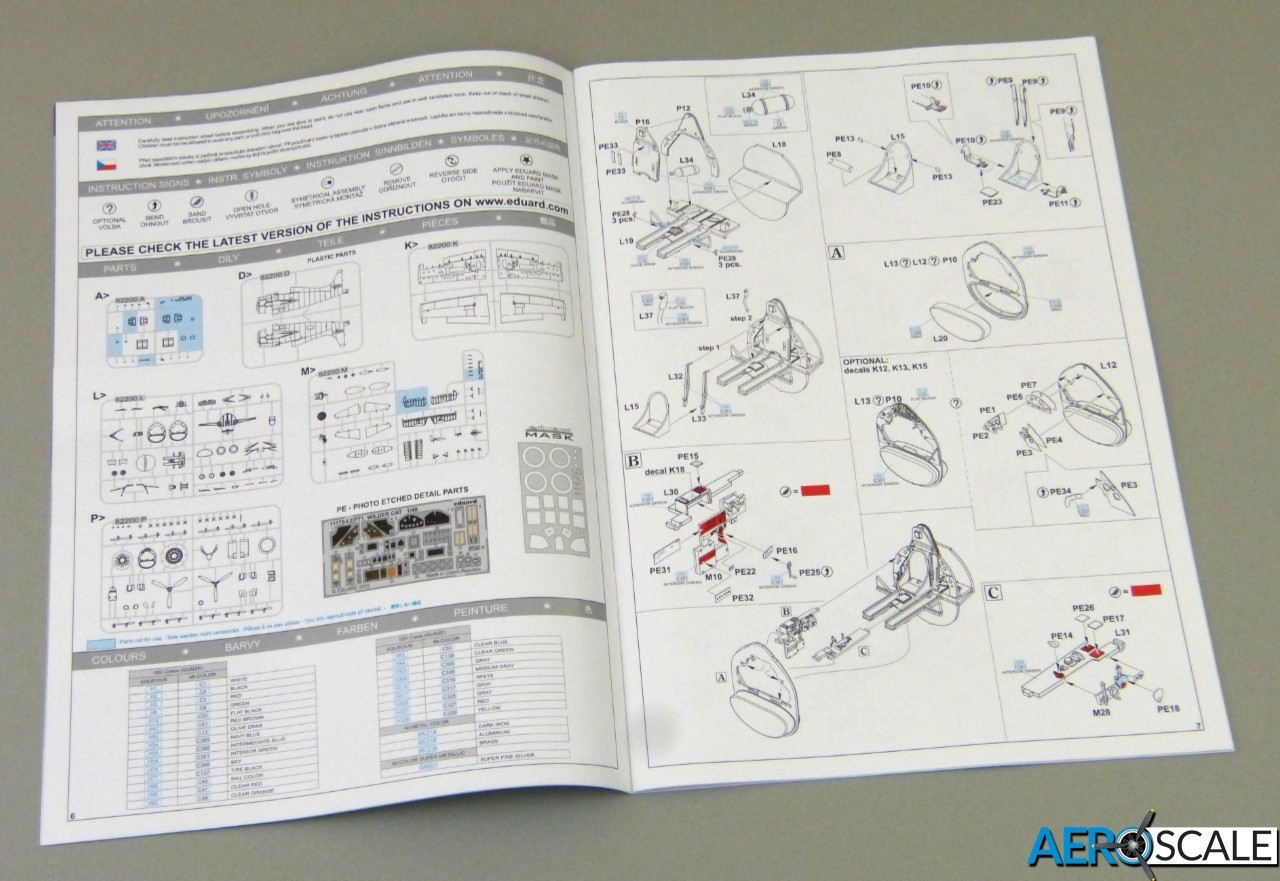
Eduard include decals for a whopping ten colour schemes - 9 USN and 1 FAA - which offer a nice variety of camouflage and markings:
FM-2 - Ens. Darrell C. Bennett, VC-10, USS Gambier Bay, August 1944
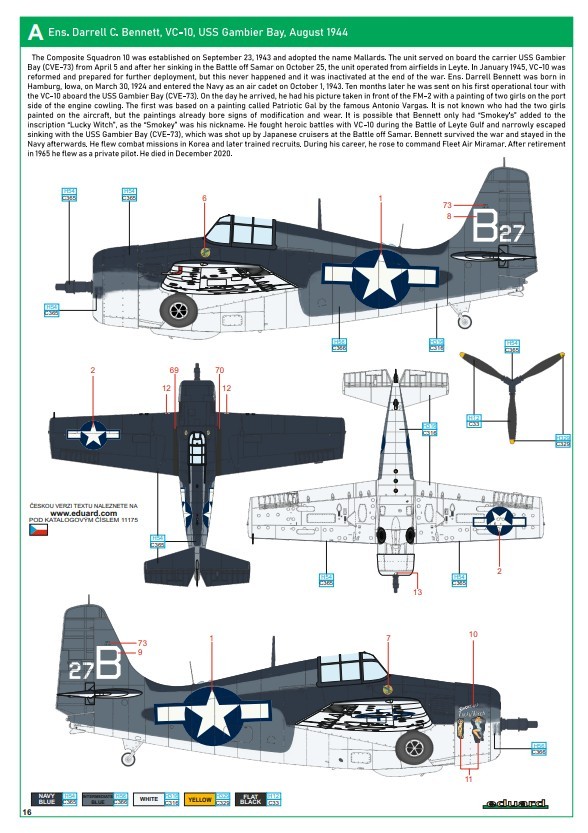
FM-2 - Lt. Leopold M. Ferko, VC-4, USS White Plains, November 1944
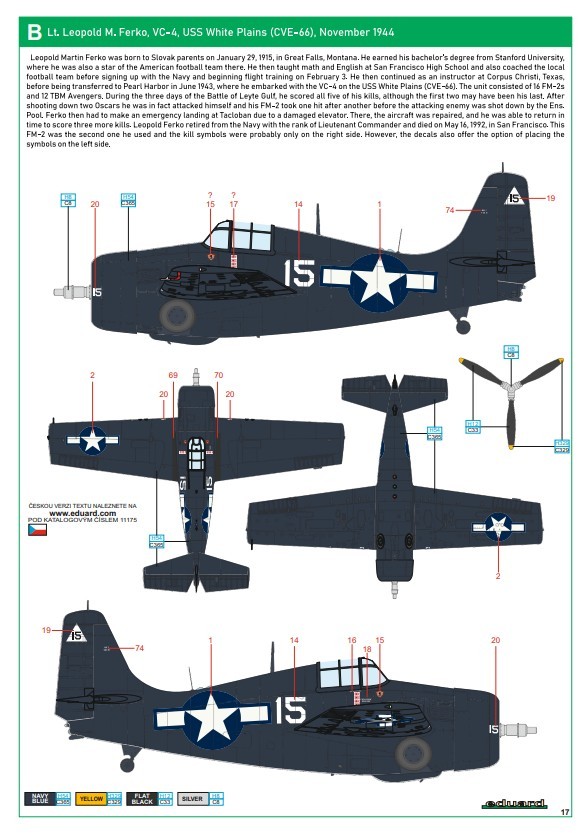
FM-2 - BuNo. 55643, VC-69, USS Guadalcanal, spring/summer 1944
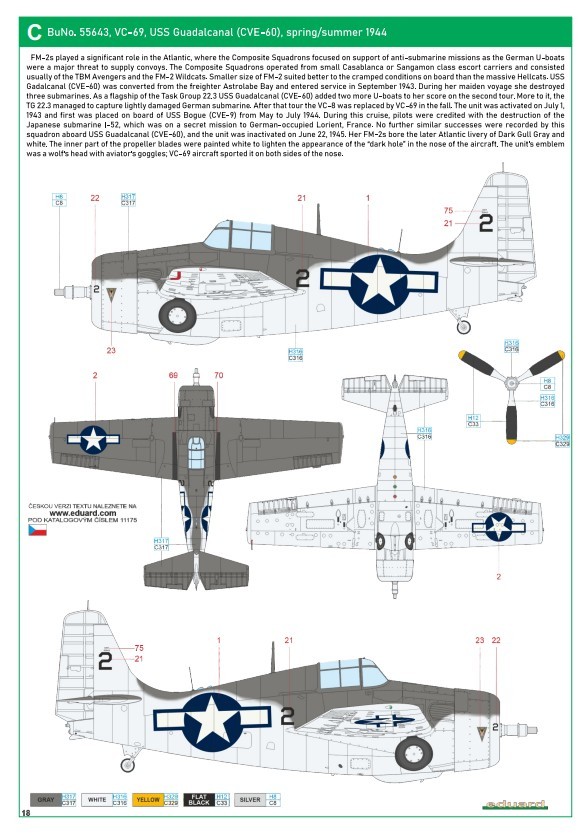
FM-2 - BuNo. 74626, VC-8, Lt.(jg) Harry N. O’Connor, USS Nehenta Bay, August 1945
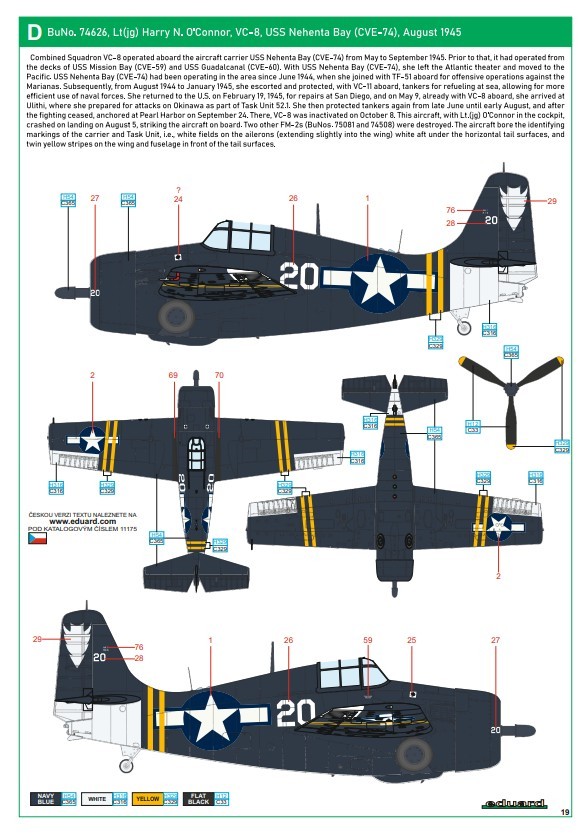
FM-2 - VC-80, USS Manila Bay, autumn 1944
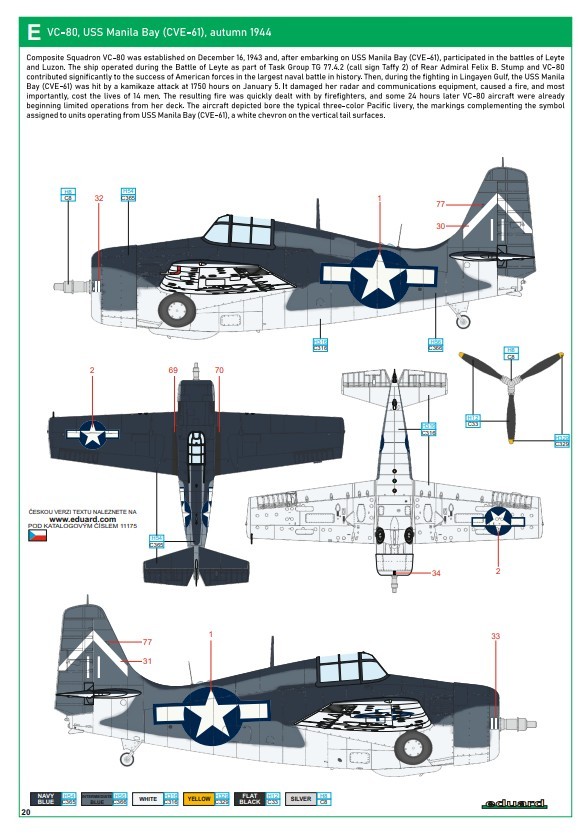
FM-2 - Lt. O’Neill, VC-13, USS Tripoli, spring 1944
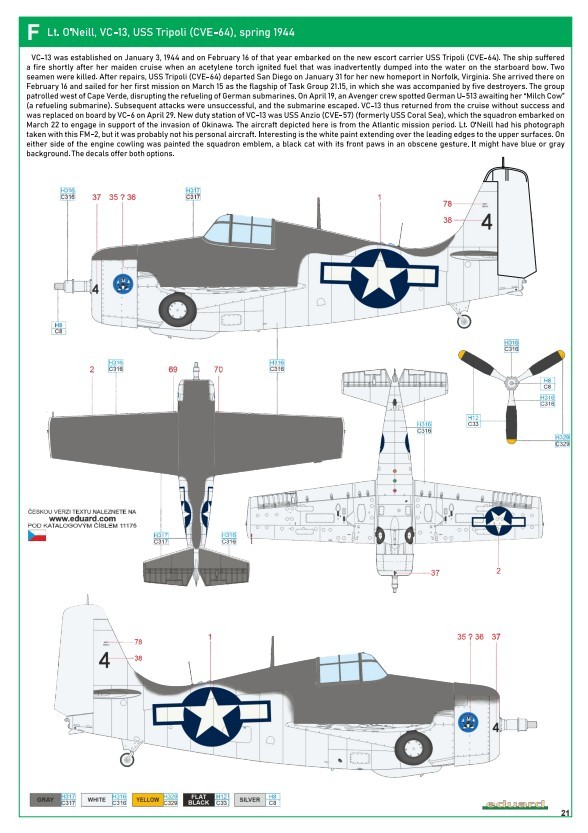
FM-2 - VC-93, Lt.(jg) Robert Sullivan, USS Petrof Bay, Okinawa, April–May 1945
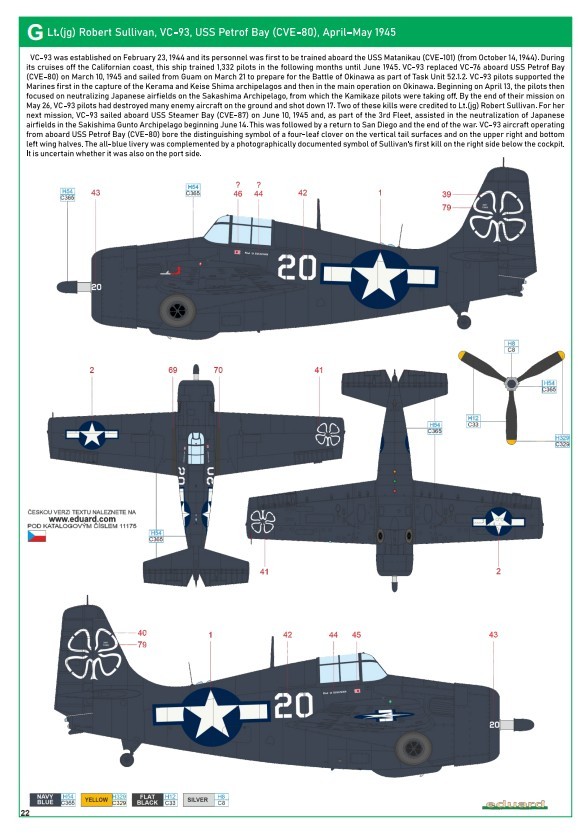
FM-2 - VC-14, USS Hogatt Bay, November 1944
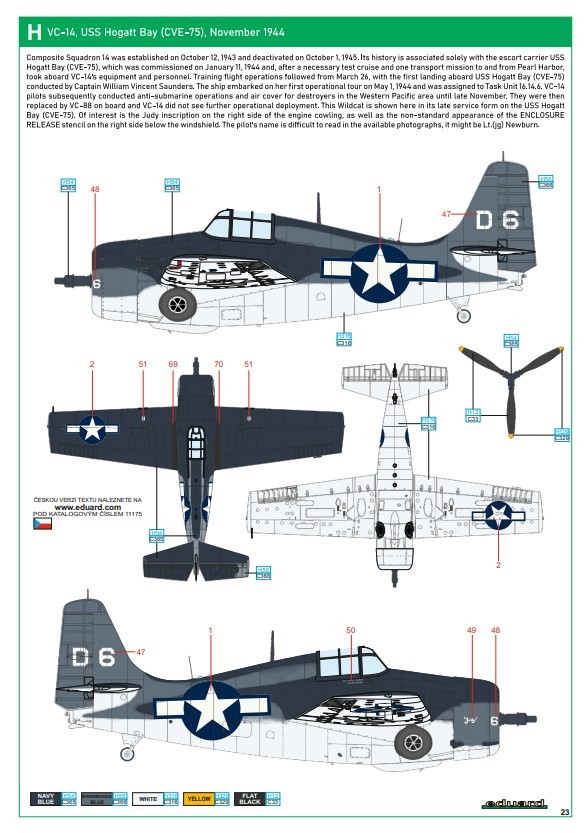
FM-2 - VC-27, Lt. Ralph Elliot, Jr., USS Savo Island, January 1945
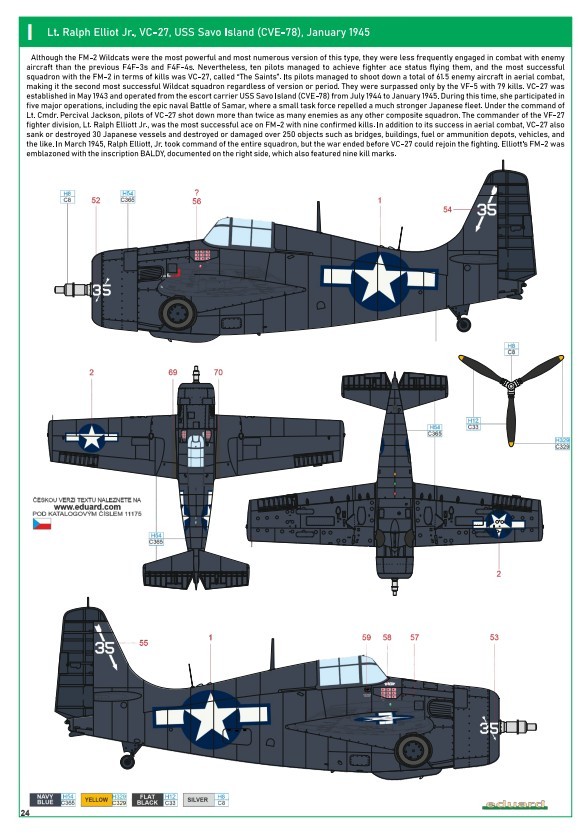
Wildcat Mk. VI - JV640, Sub-Lt W. Park, No. 881 Squadron FAA, HMS Pursuer, August 1944
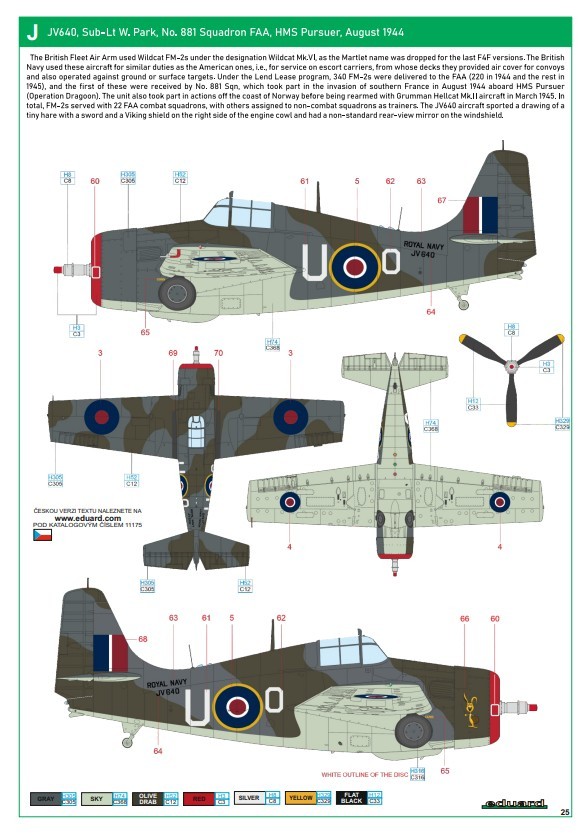
In common with recent Eduard kits, the decals are thin and glossy, with quite prominent carrier film. This was slightly off-putting the first time I encountered them, but I found it snuggled down invisibly in use, and the decals went on beautifully - just take care not to let them fold over on themselves. The registration is excellent, but some colours are printed as tiny dots - it's noticeable in the yellow of the Royal Navy roundels if you look closely - which isn't ideal.
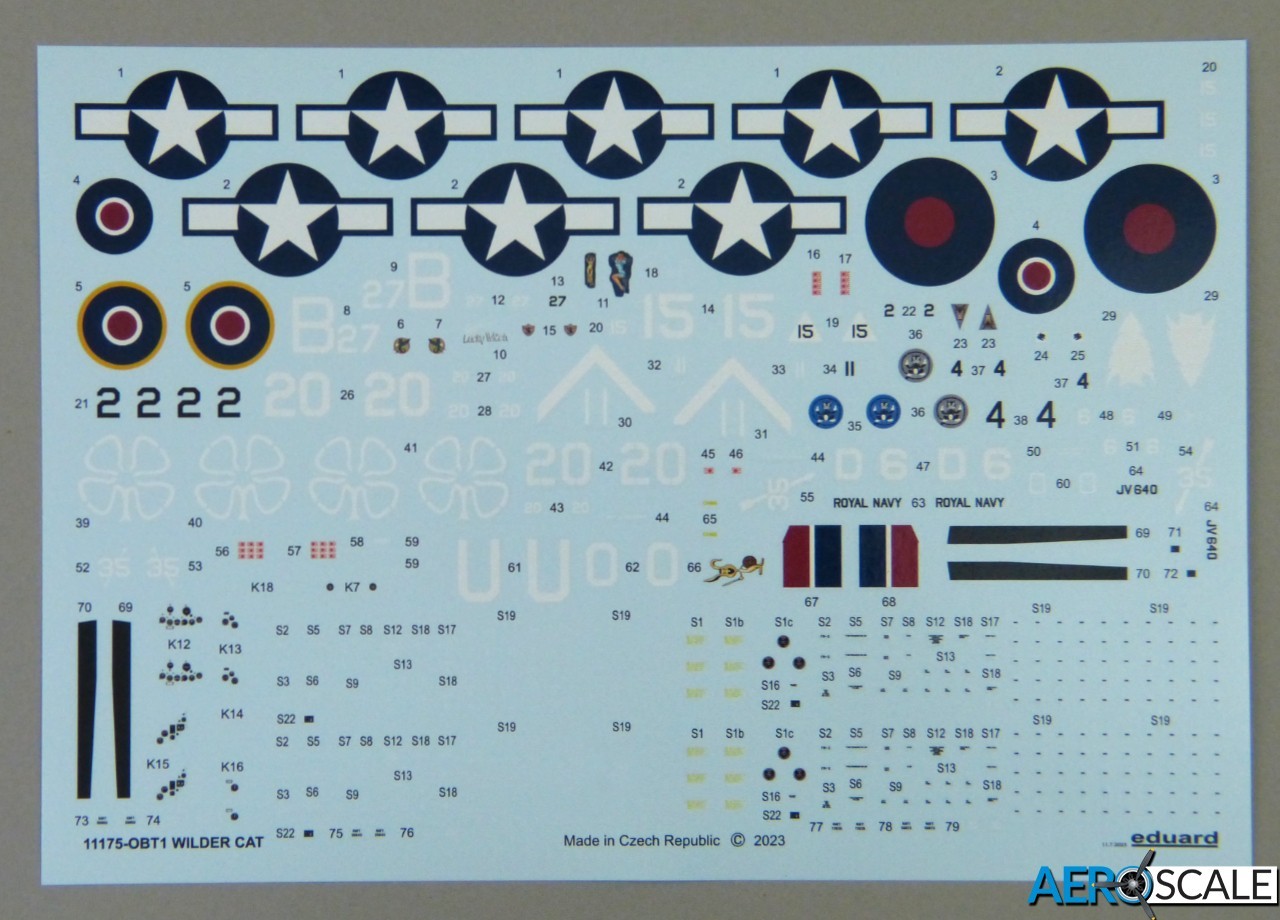
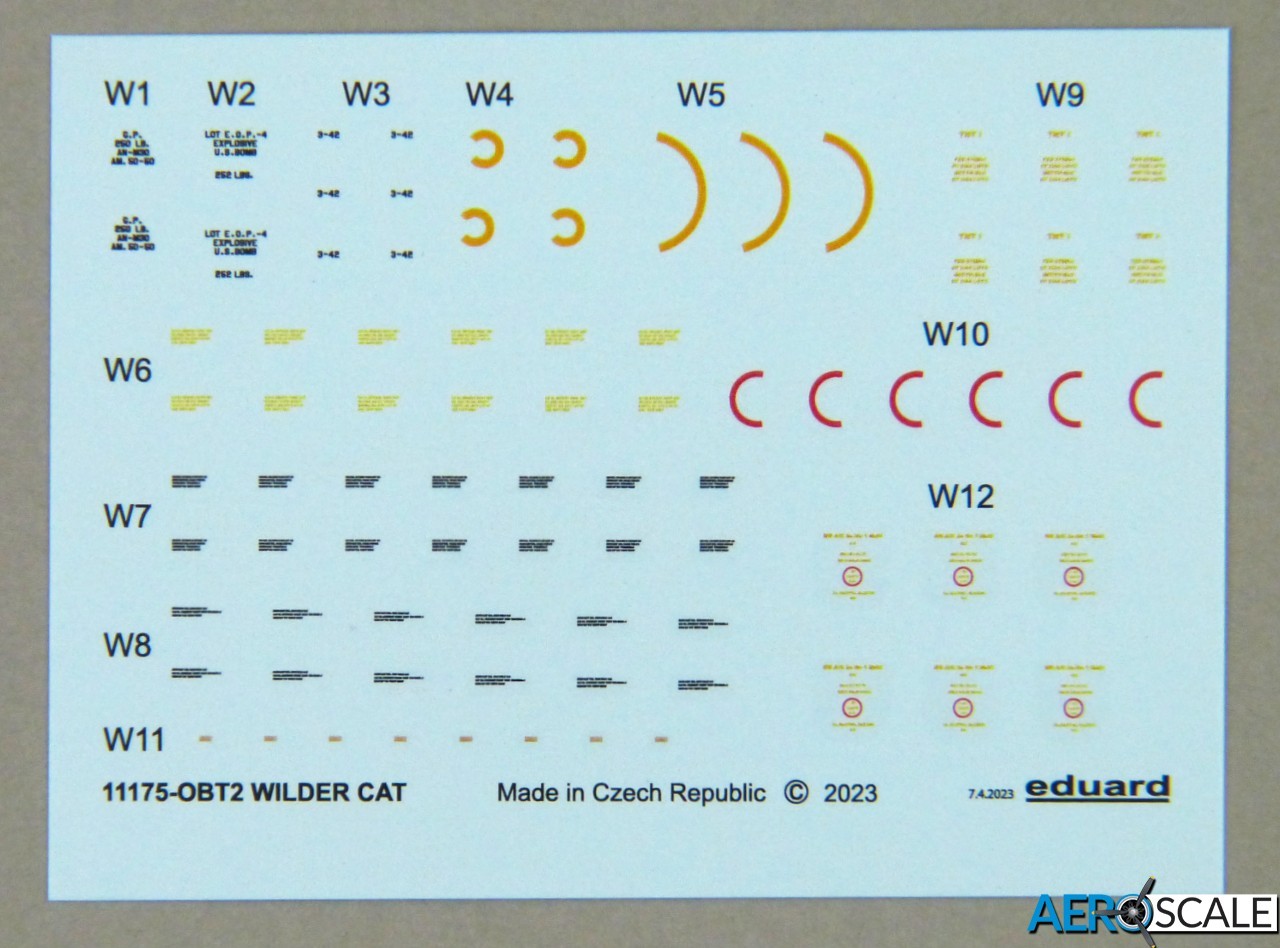
Eduard include a comprehensive set of stencil markings, complete with a full-page placement guide.
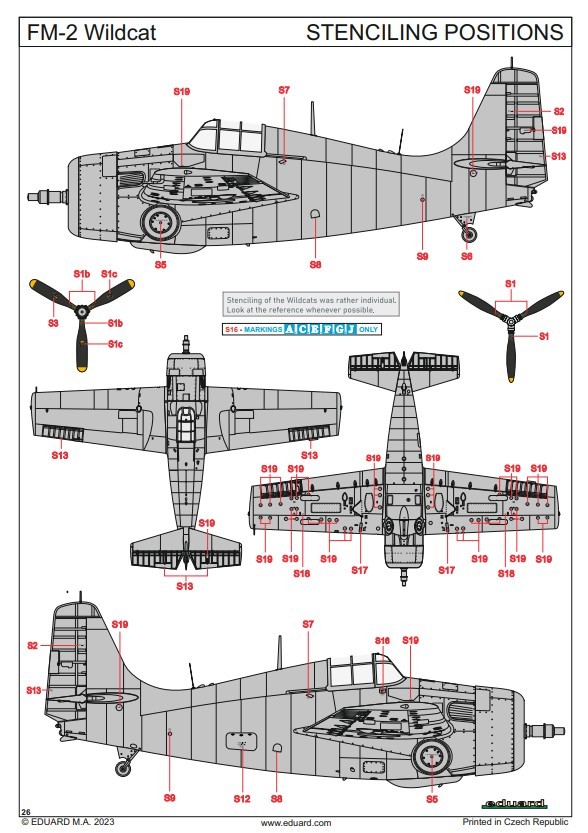
Conclusion
Eduard's "Wilder Cat" is a great addition to their range of superb 1:48 Wildcats. Sporting a full load of rockets, the FM-2 will stand out in any line-up, and the inclusion of so many varied markings options should leave nobody without an option that they fancy. In fact, this number of colour schemes would be appropriate for a Dual Combo kit so, instead of consigning the unused decals to the spares box, perhaps this would be the ideal opportunity to get a set of Eduard's over-sprues to make full use of them all.
Item #11175 is available now from Eduard - Price: £24.14
https://www.eduard.com/eduard/wilder-cat-1-48.html
Many thanks to Eduard for the review sample.
Please remember, when contacting retailers or manufacturers, to mention that you saw their products highlighted here - on AEROSCALE










